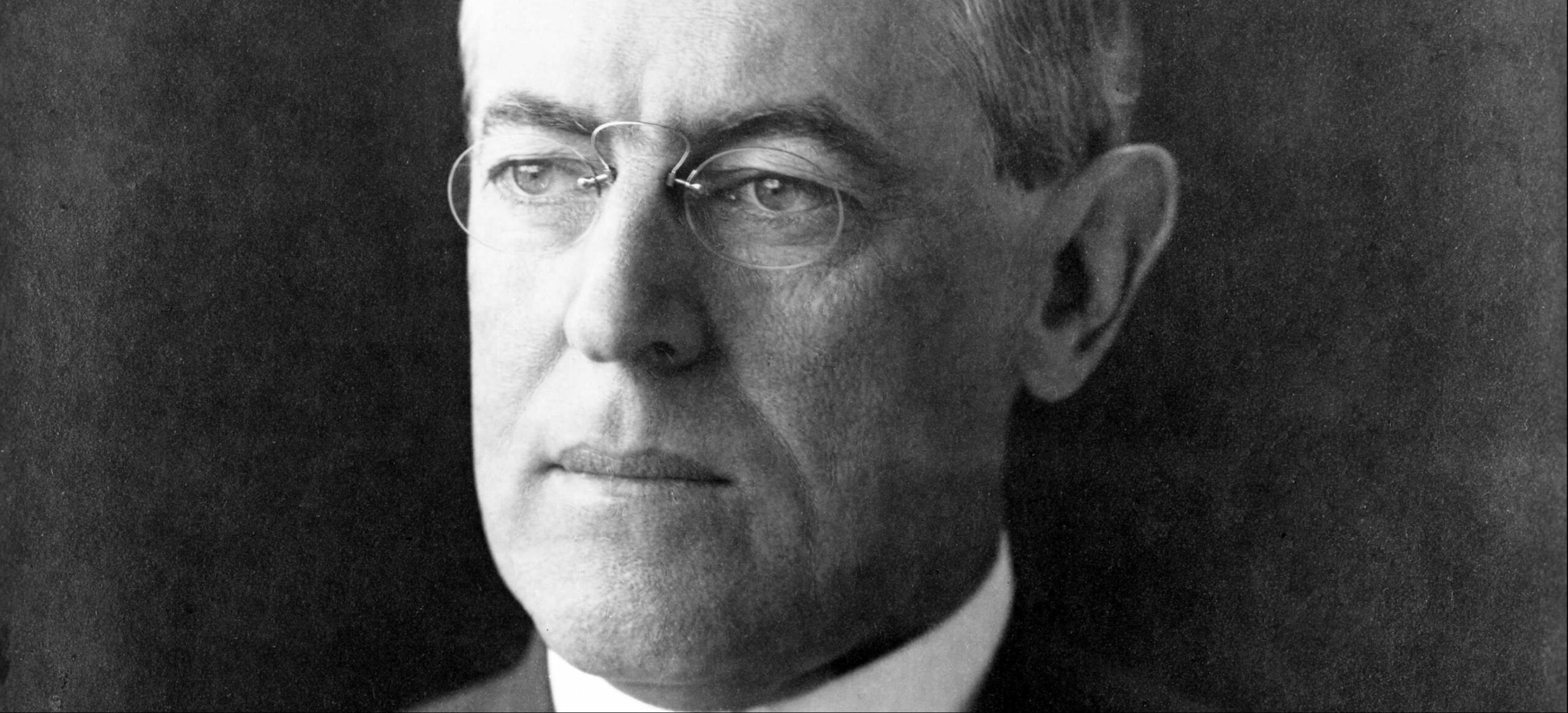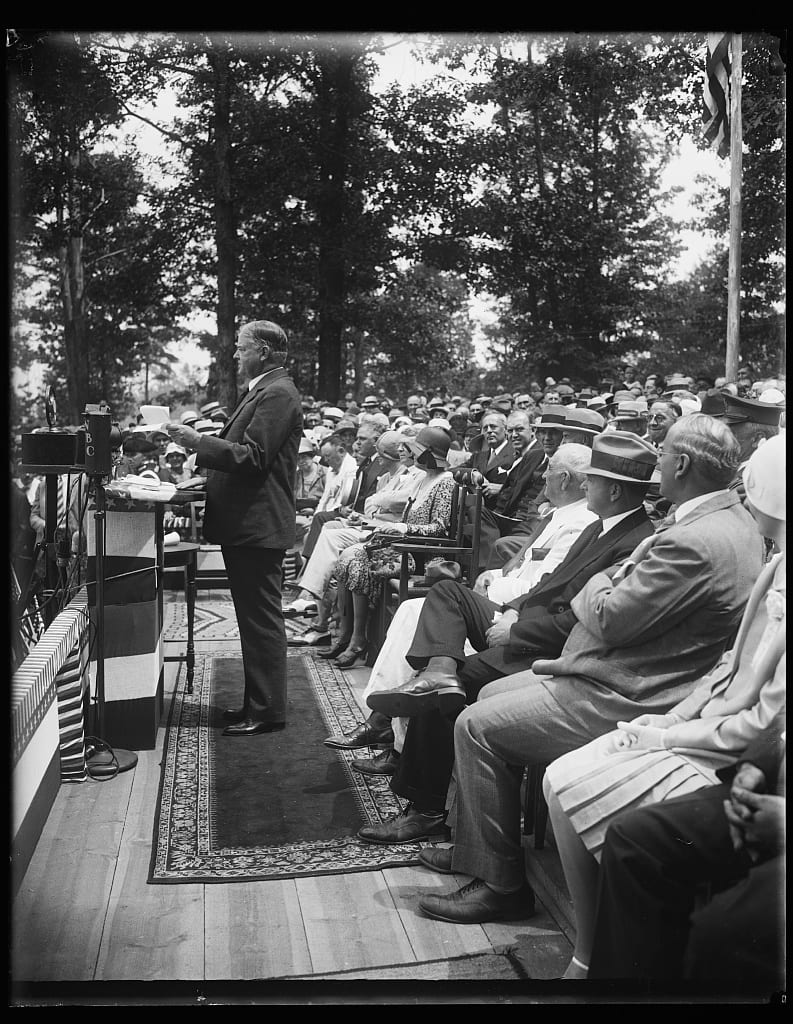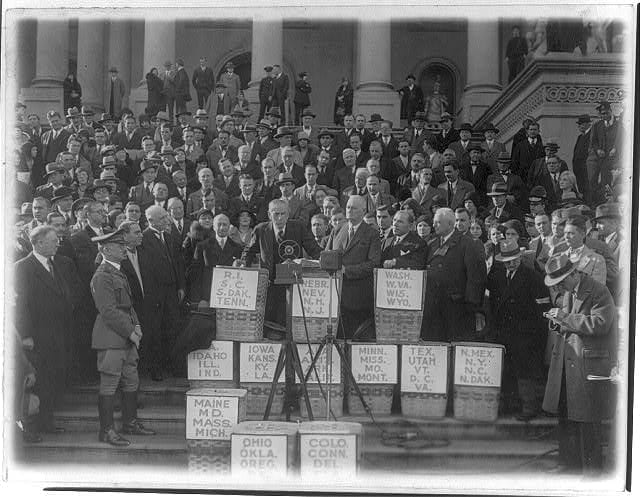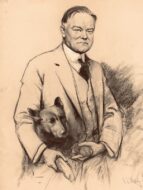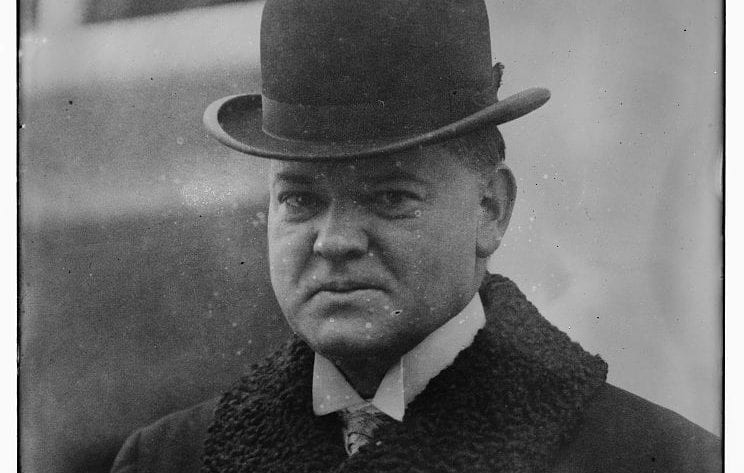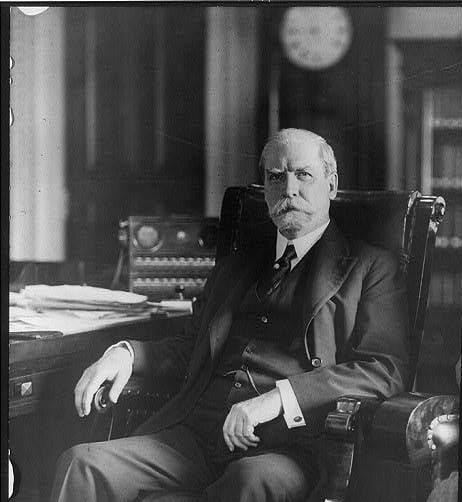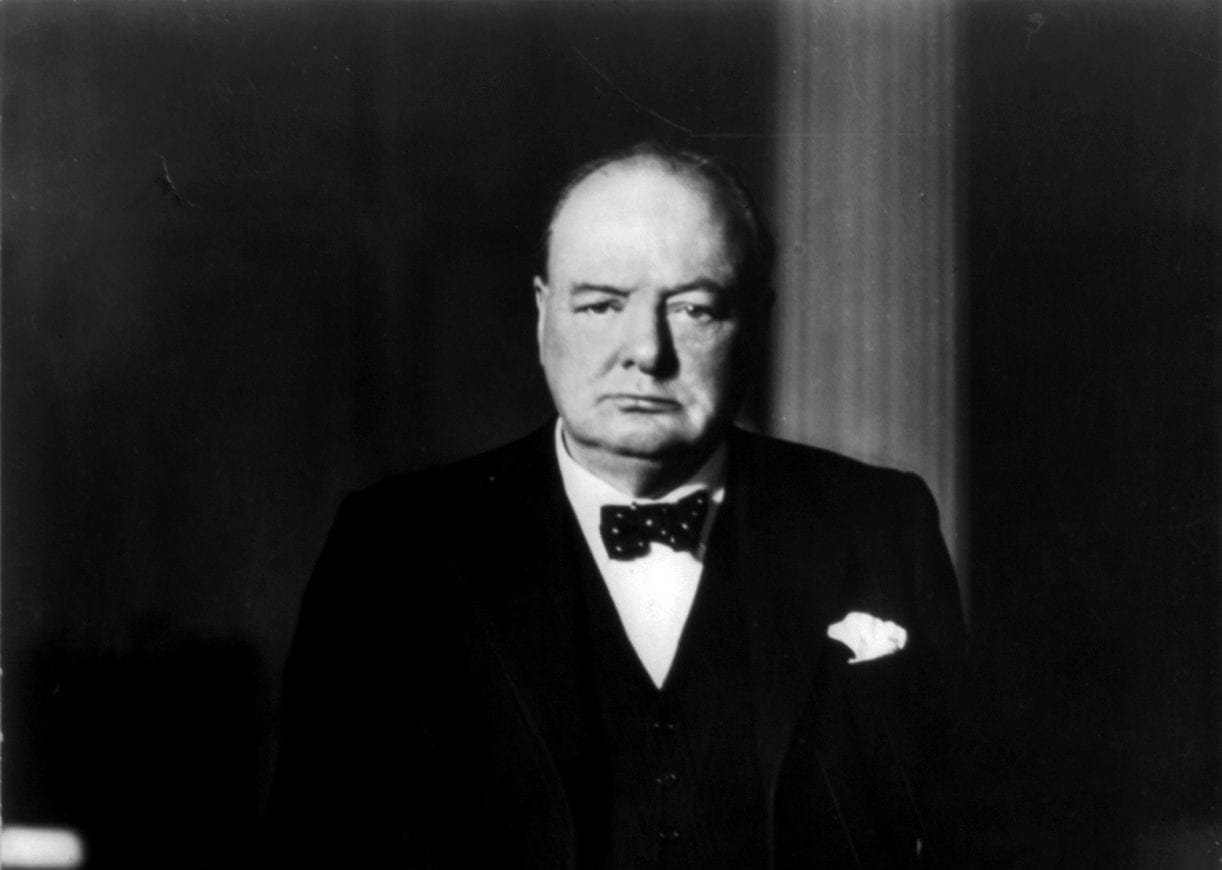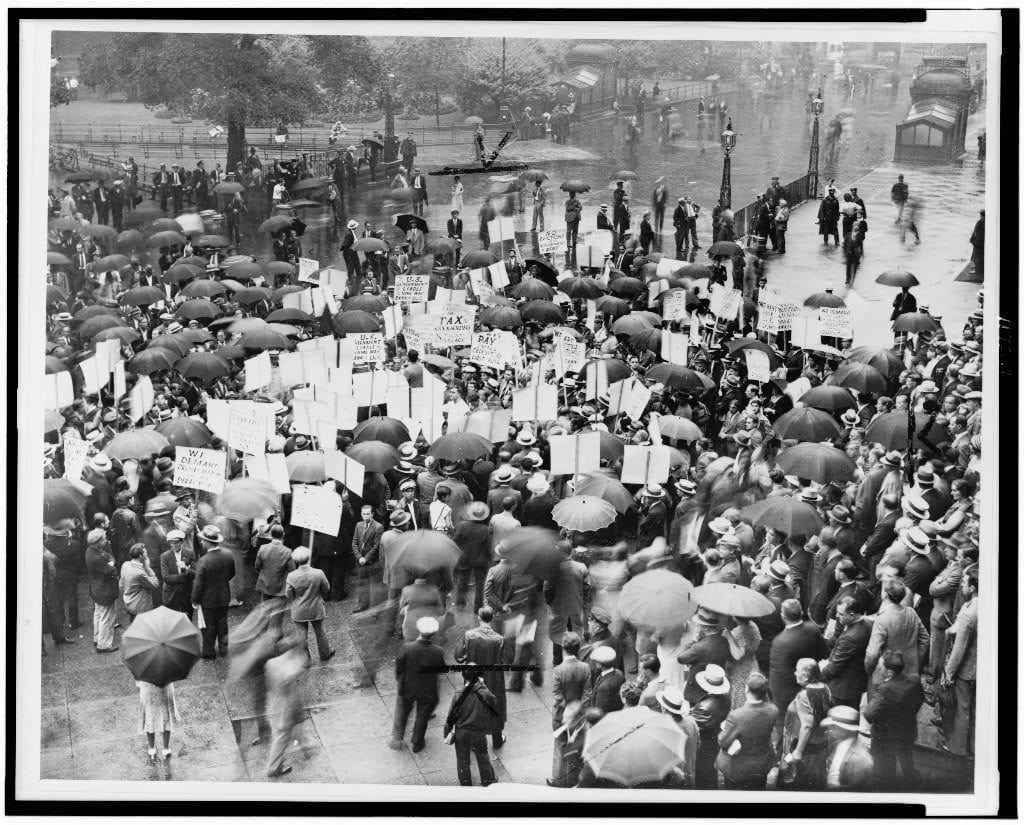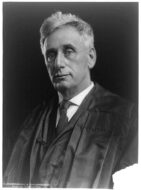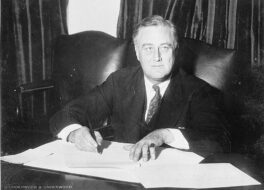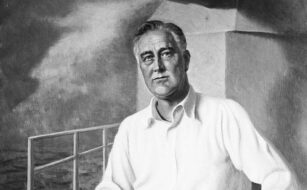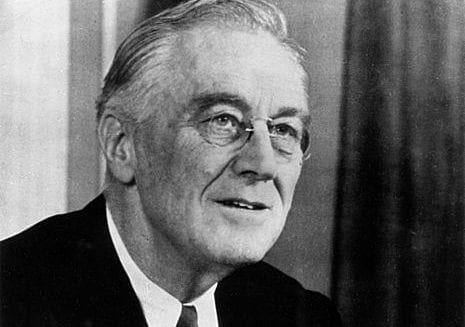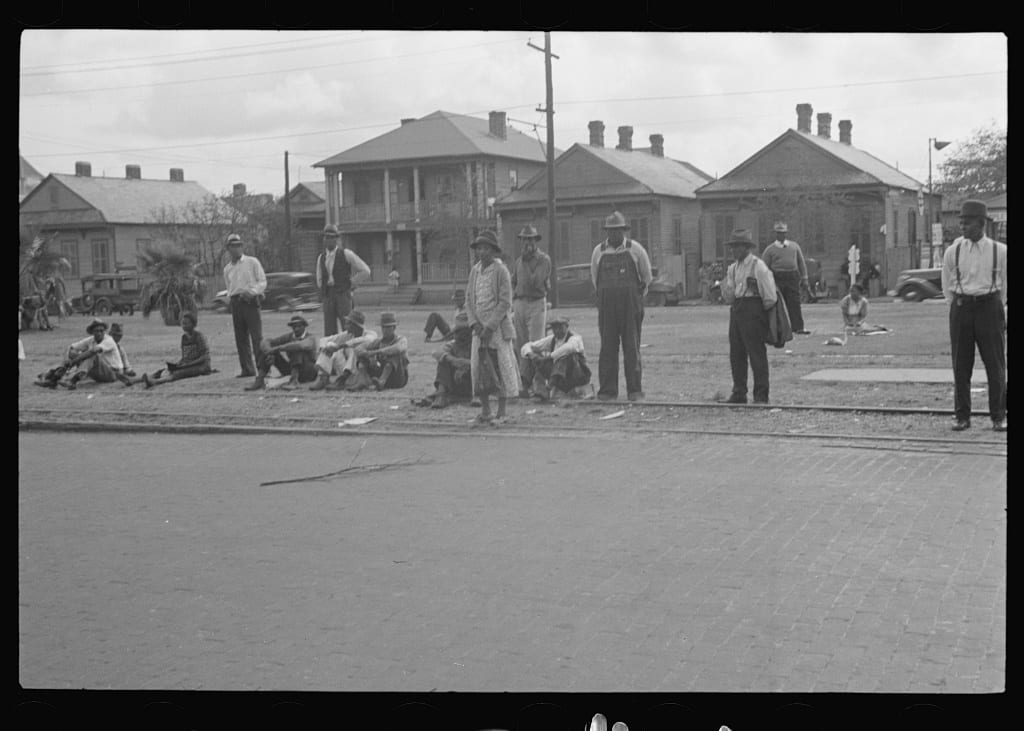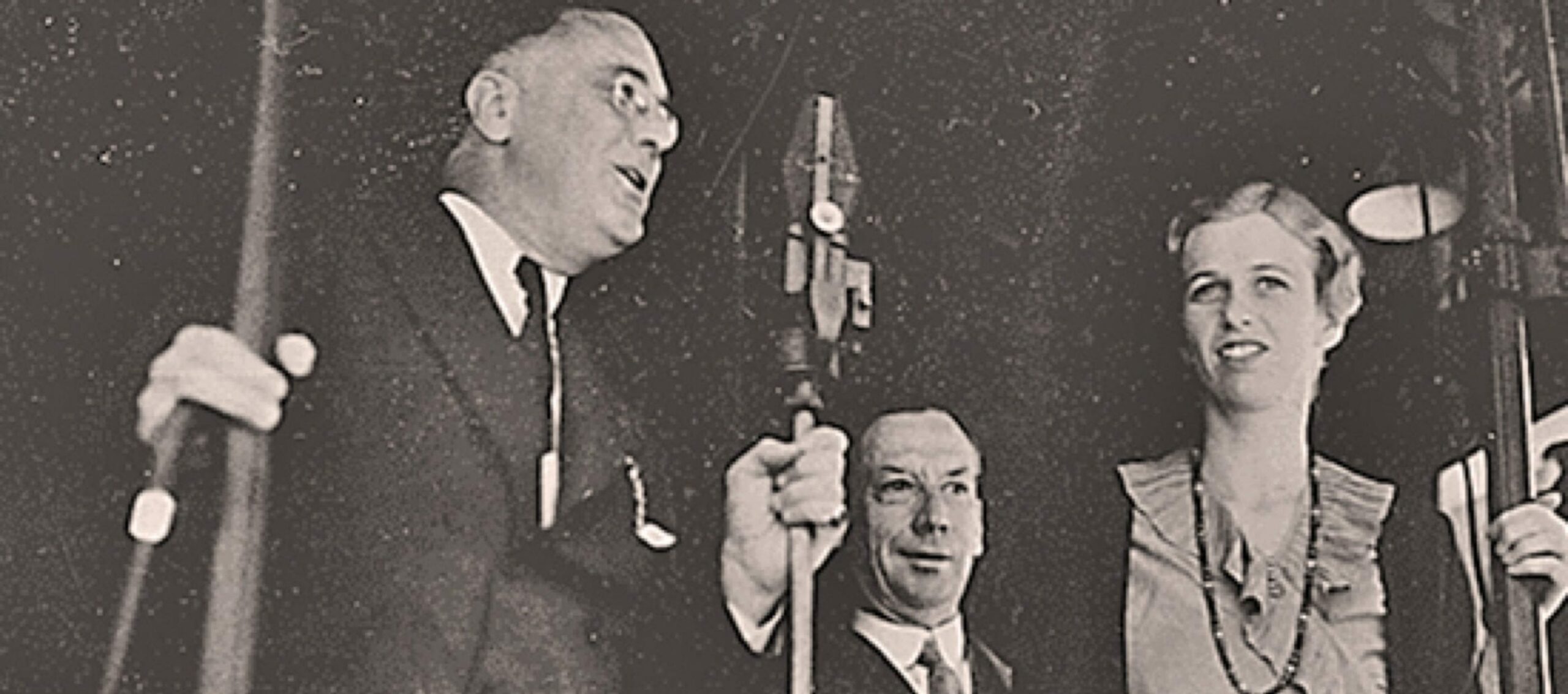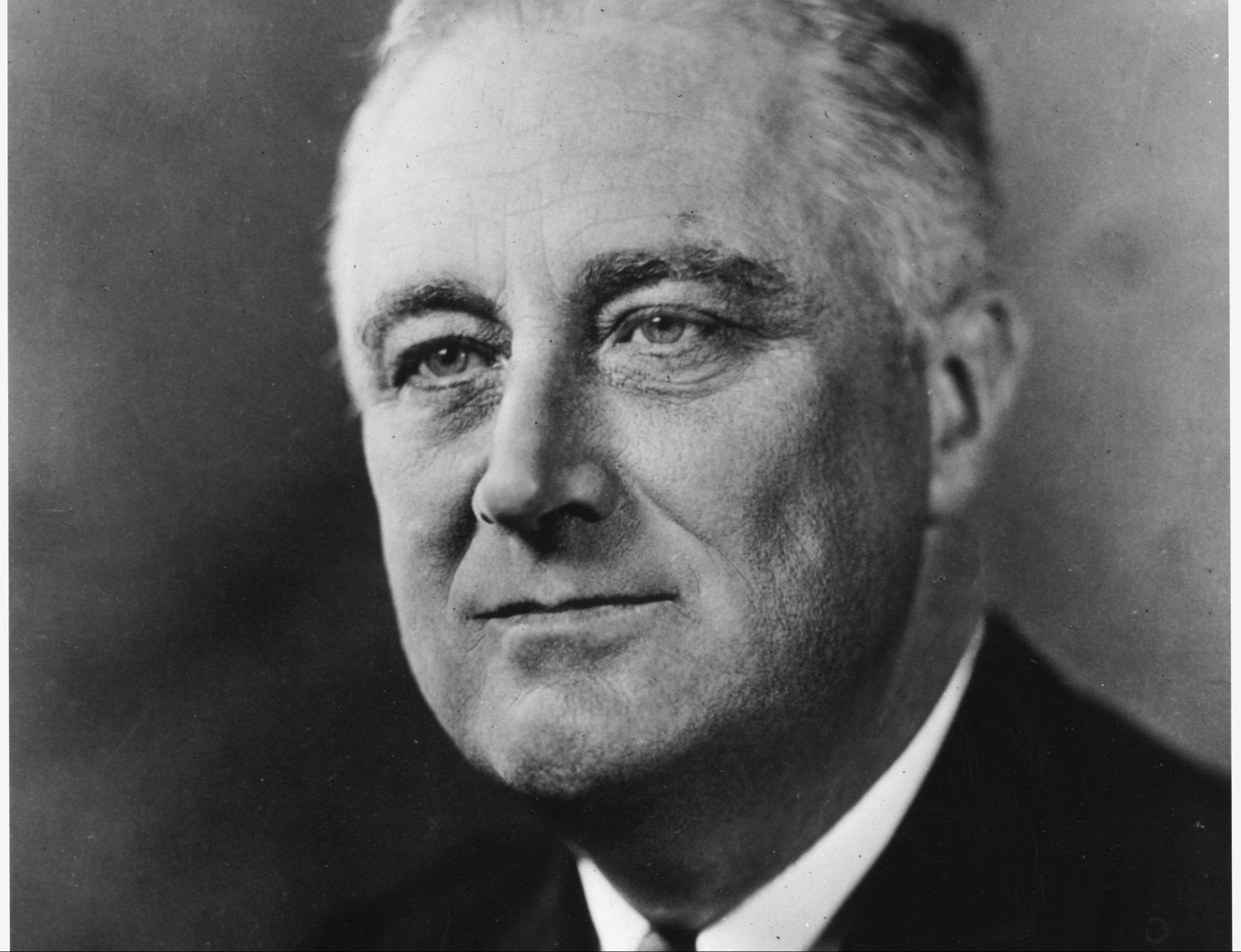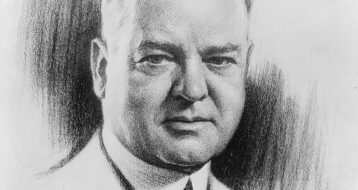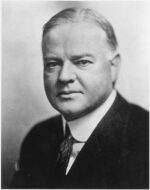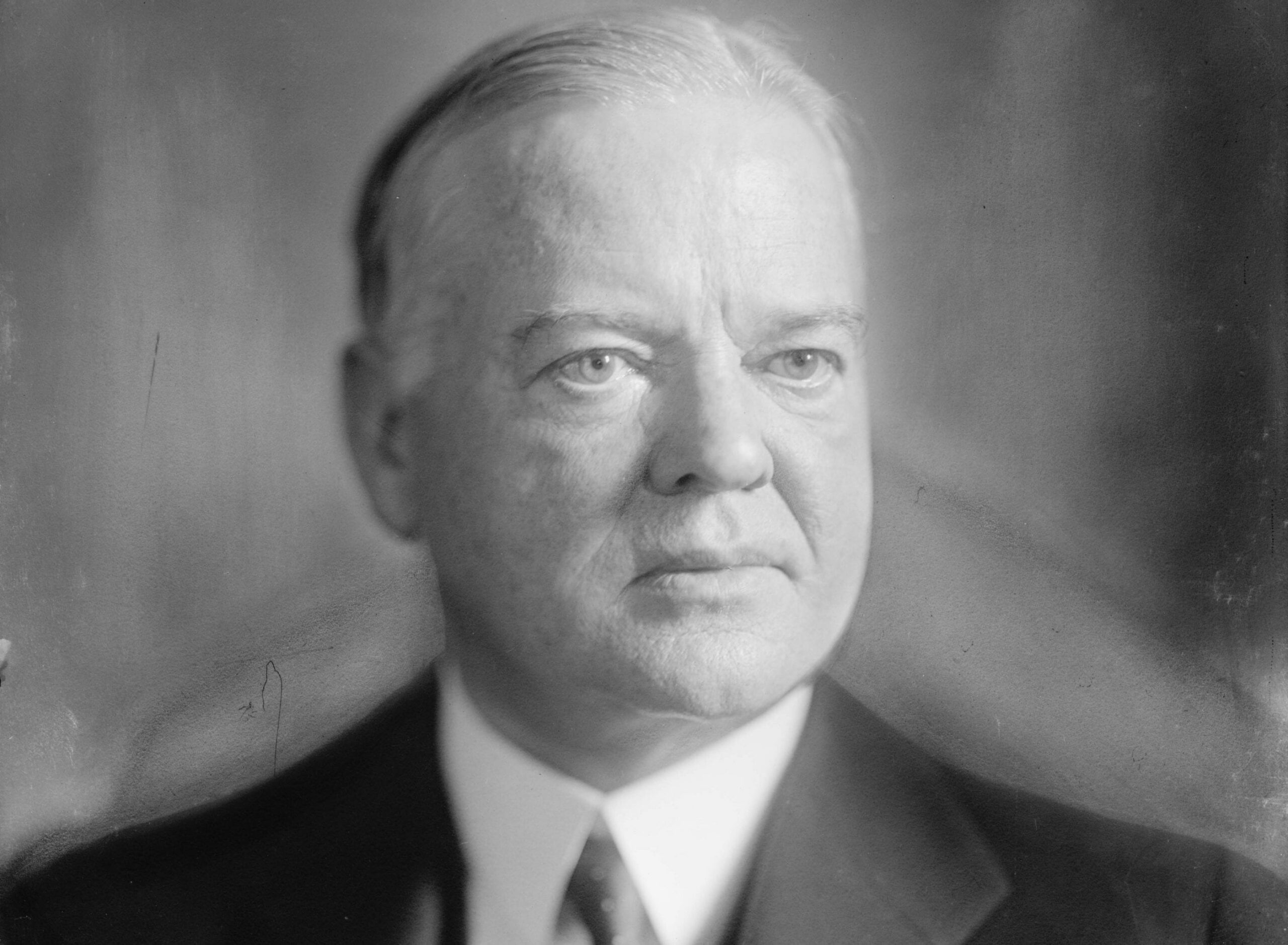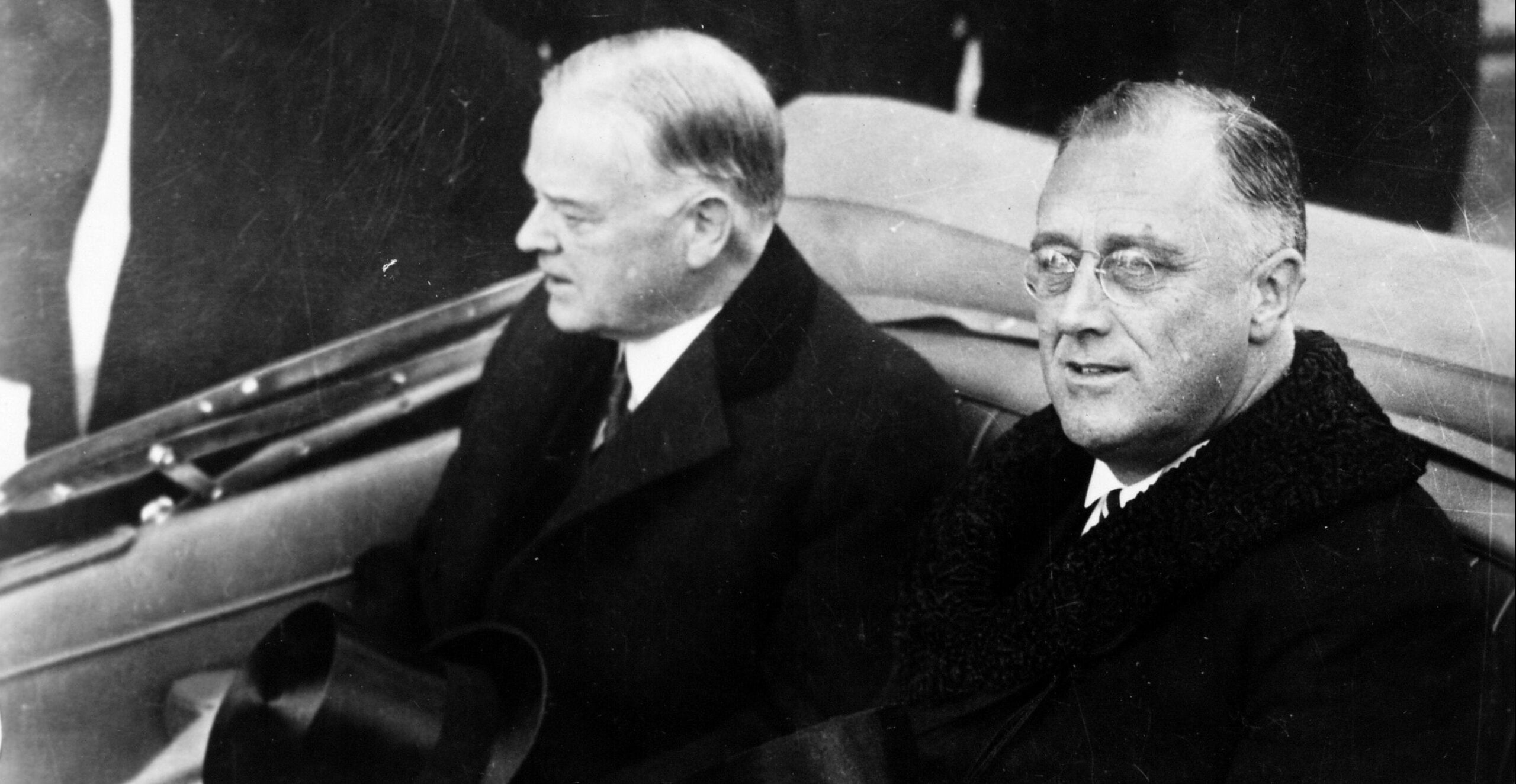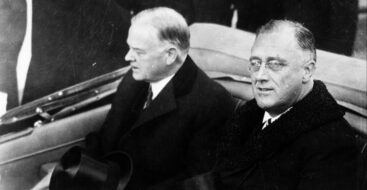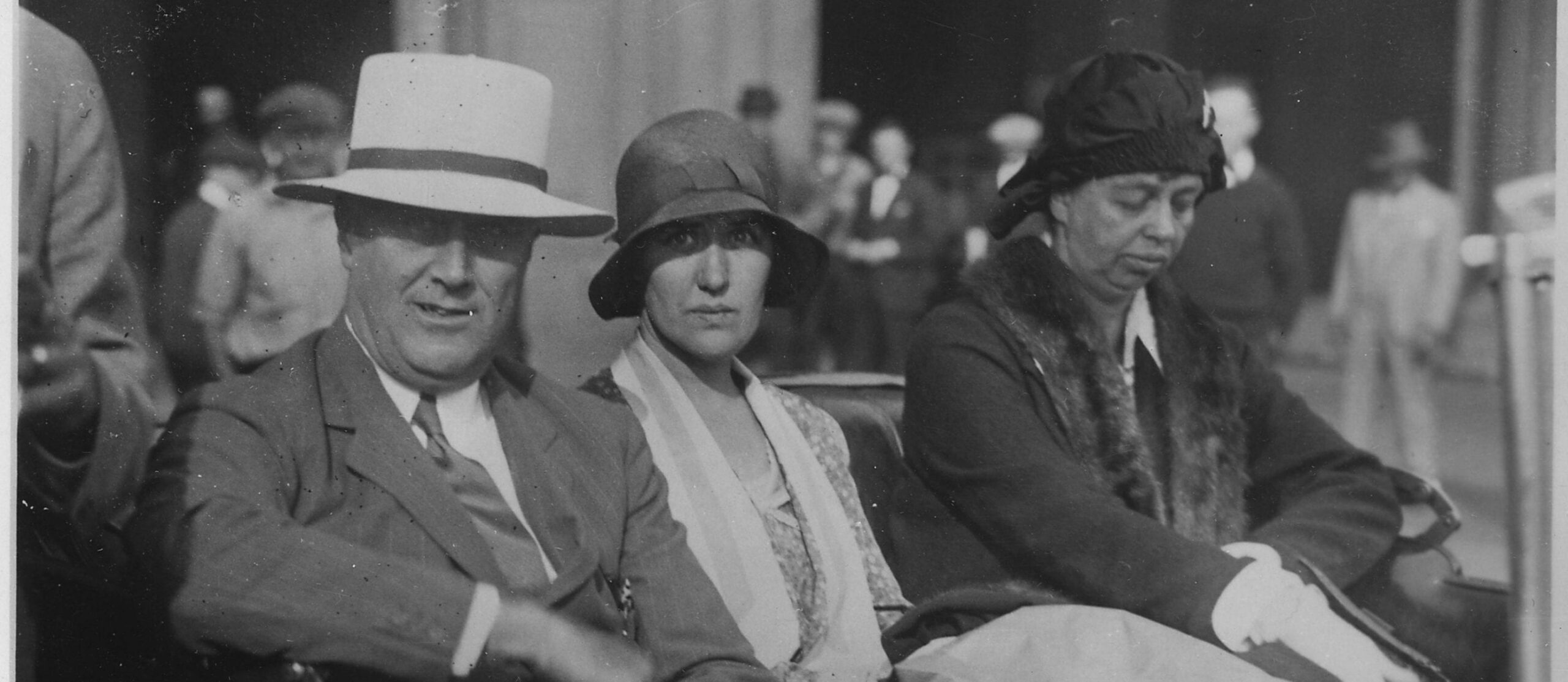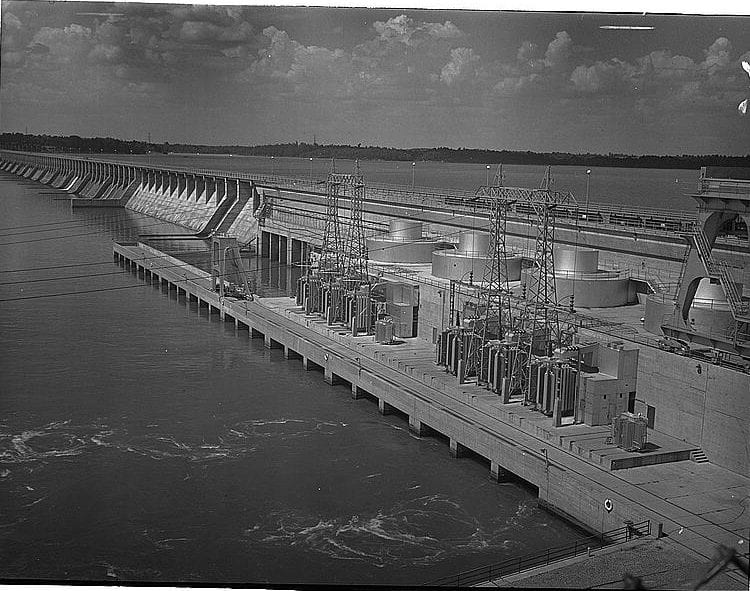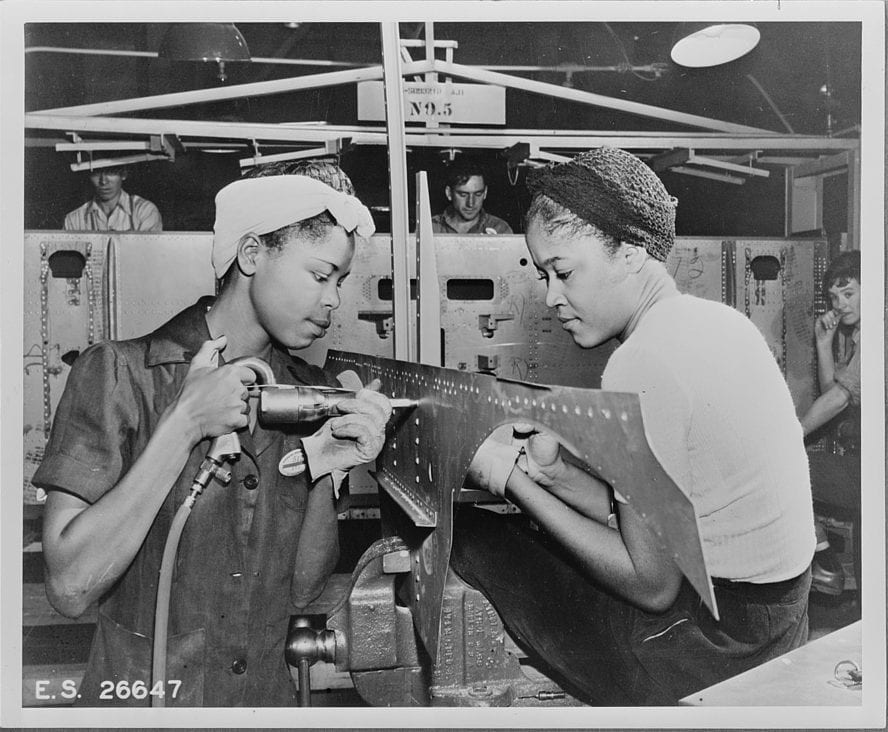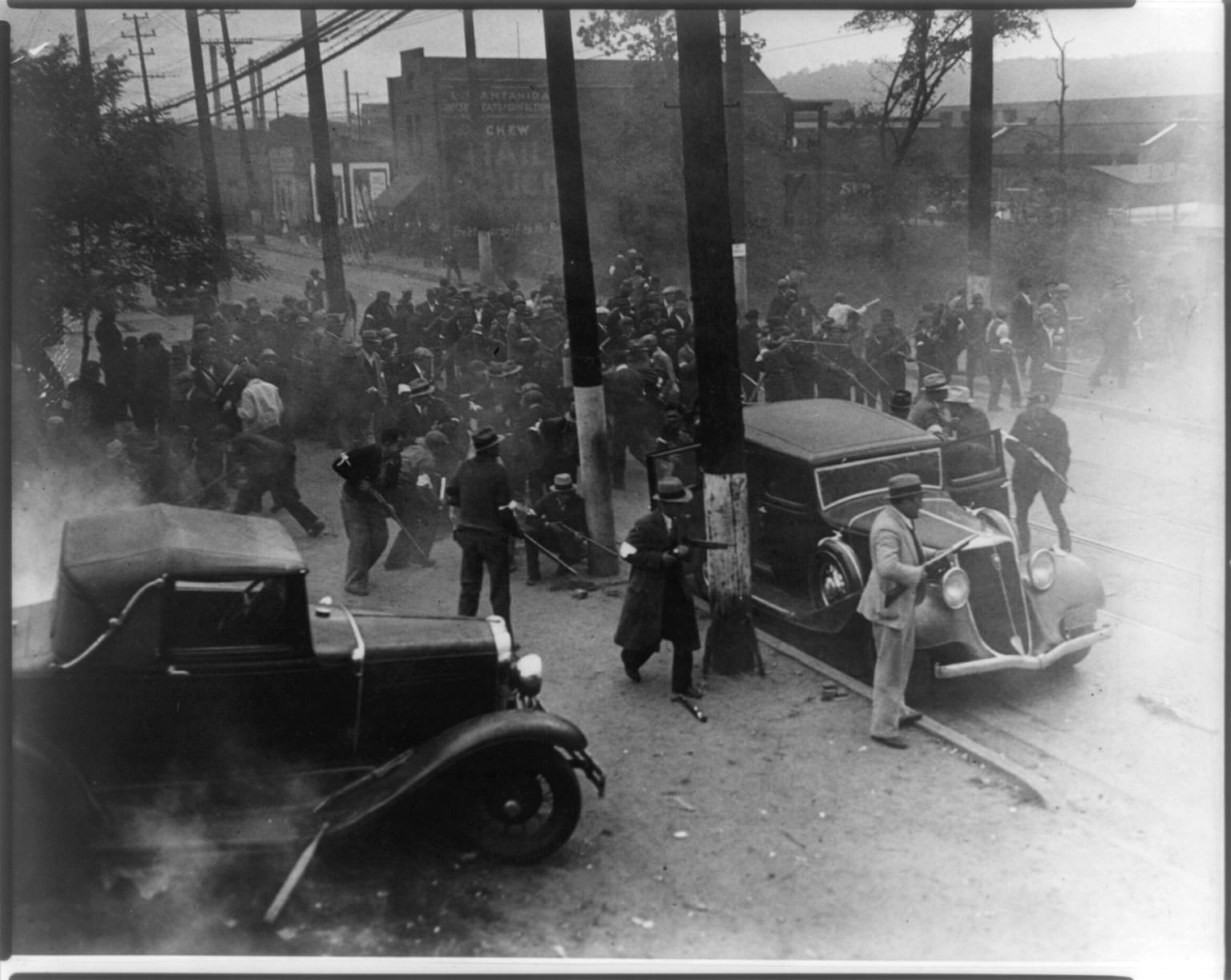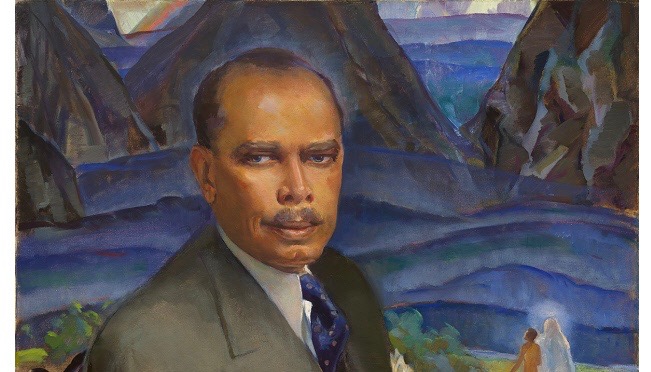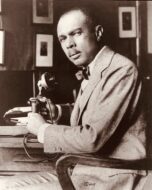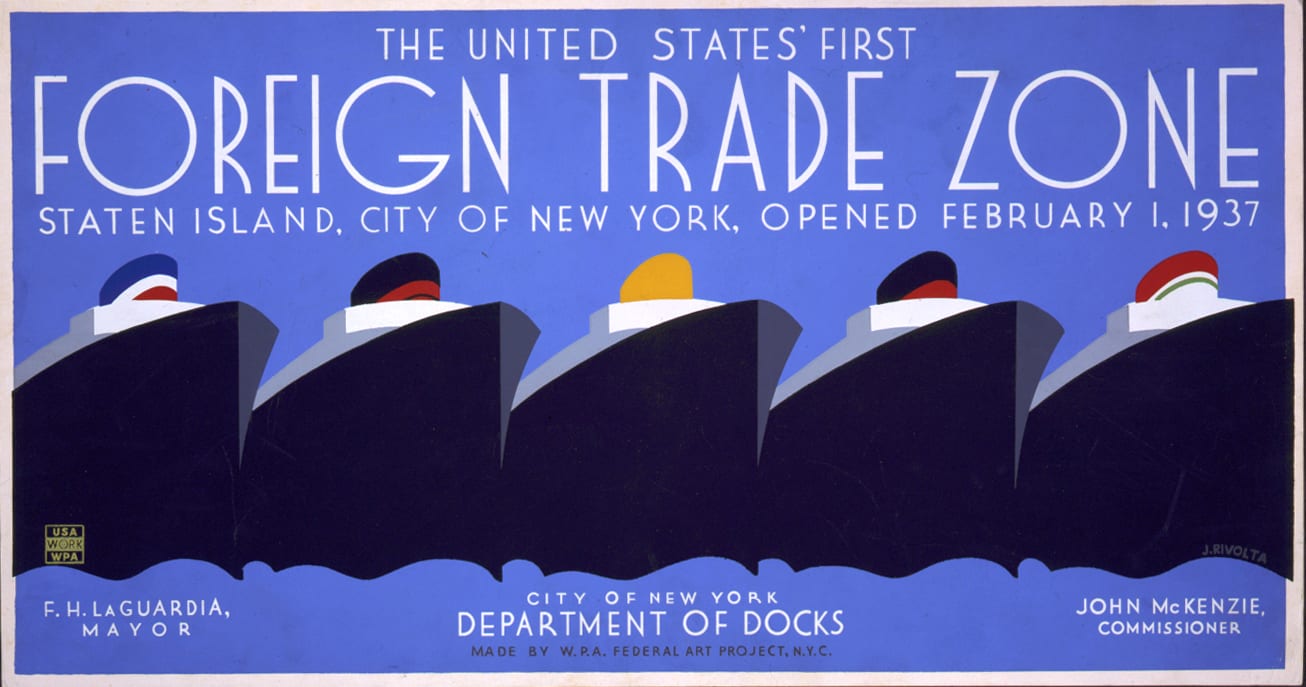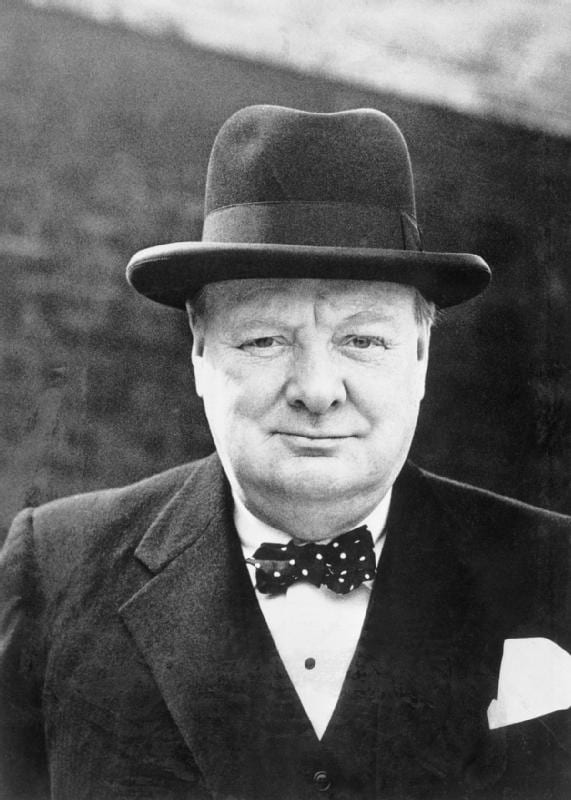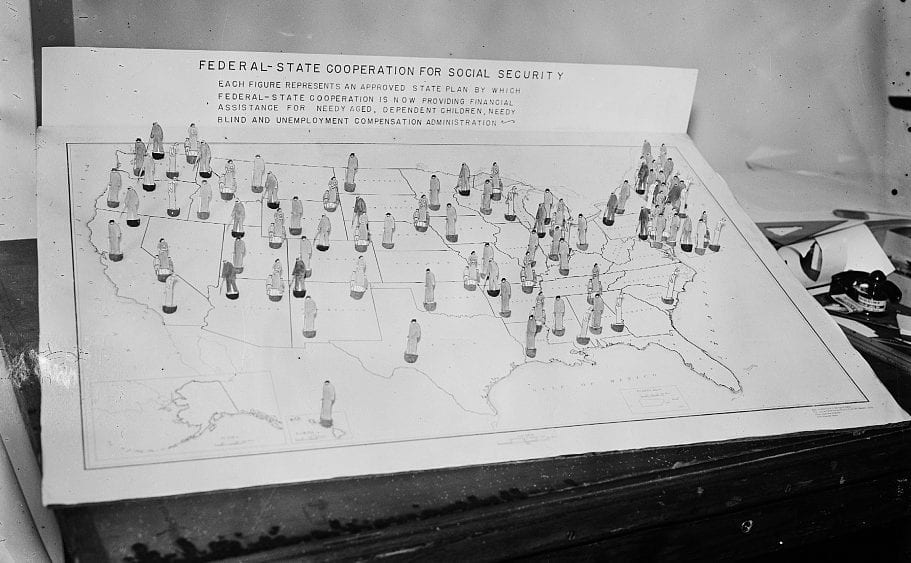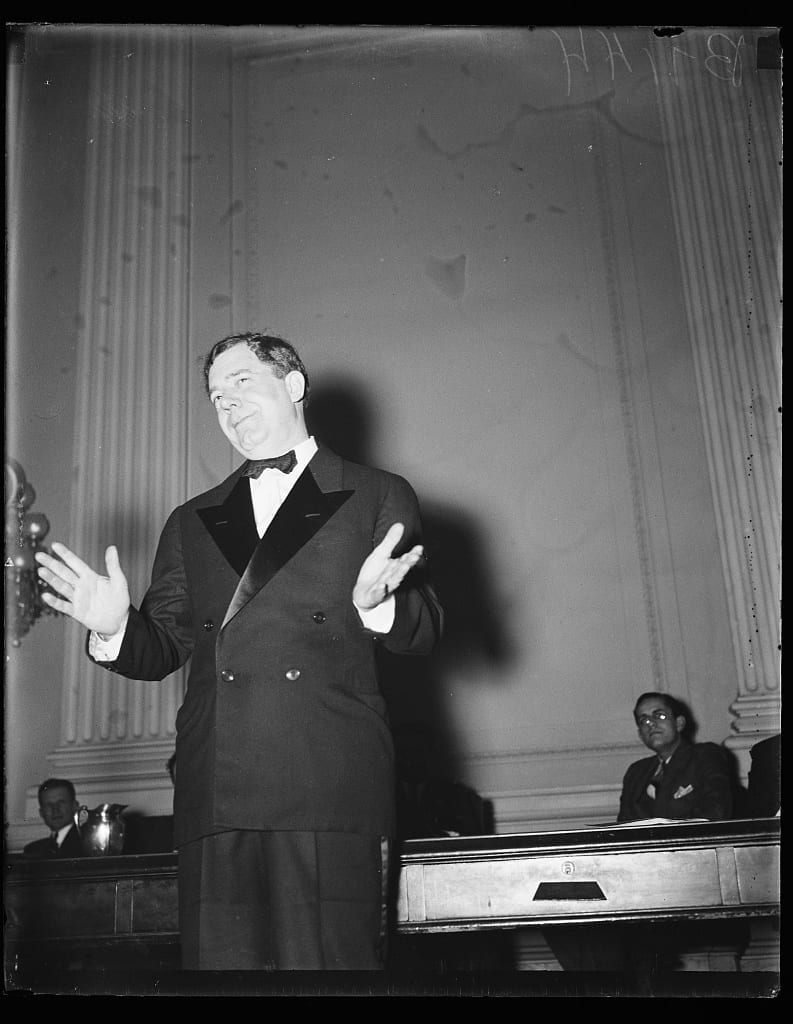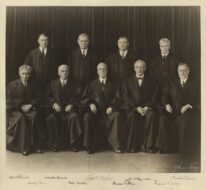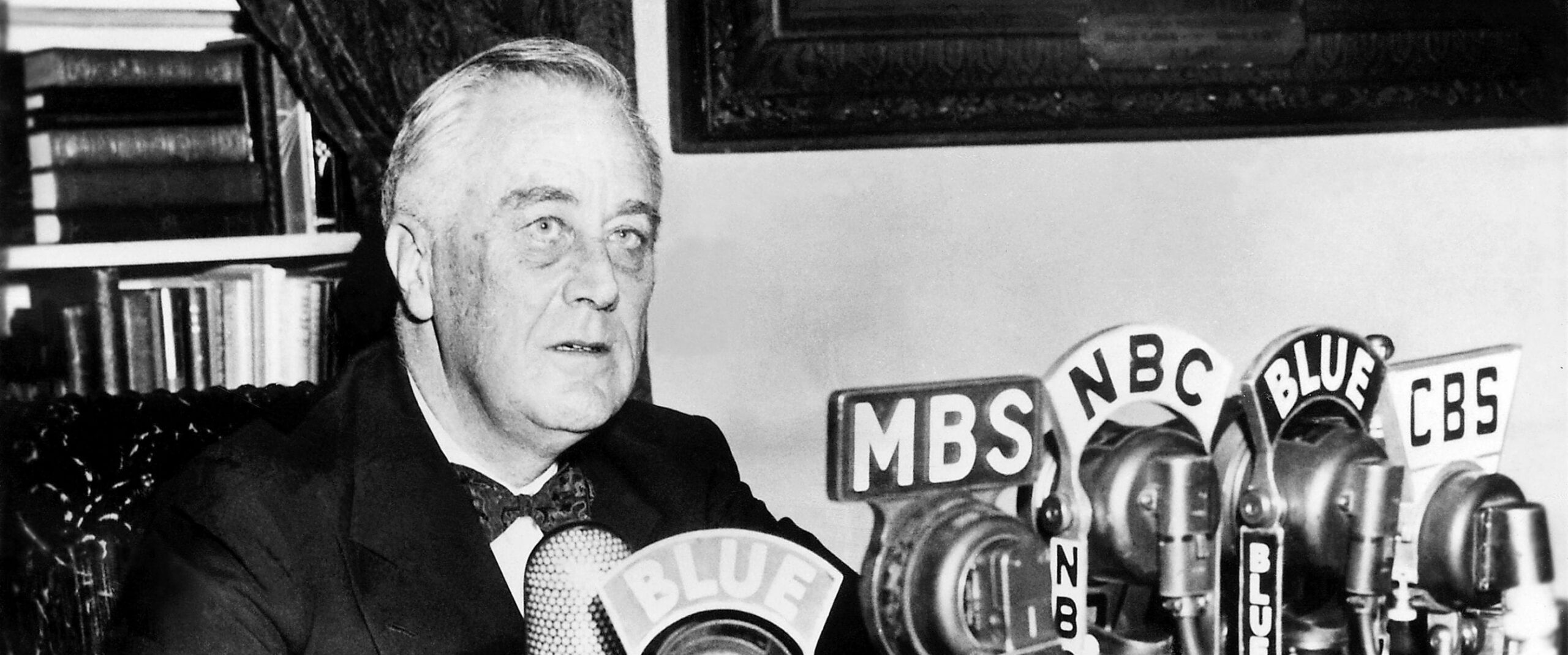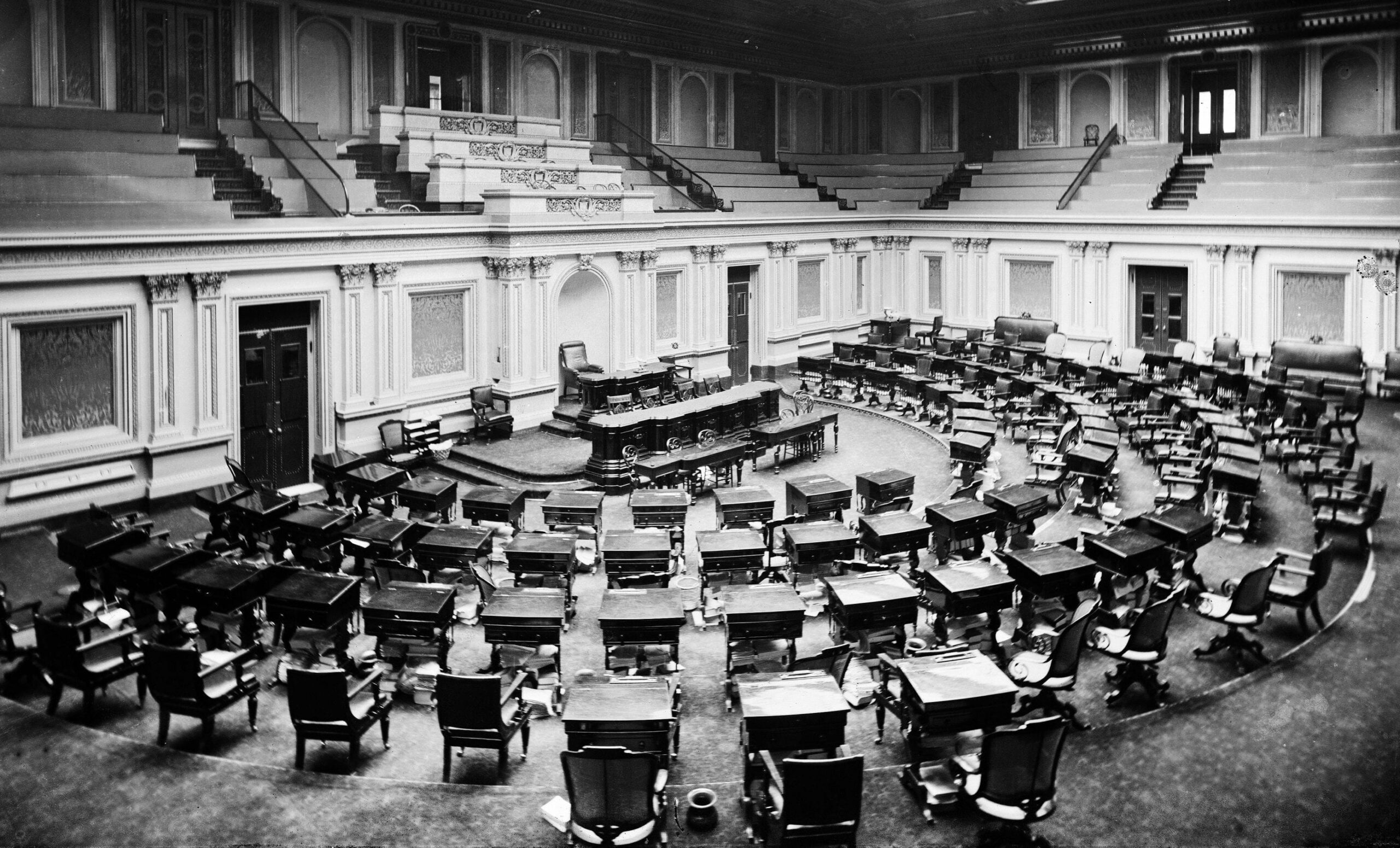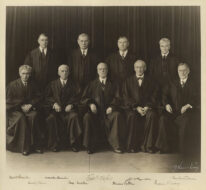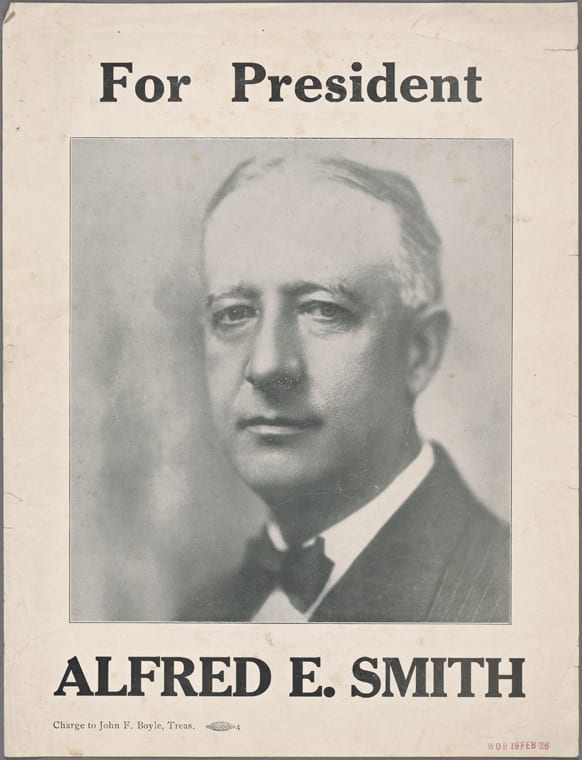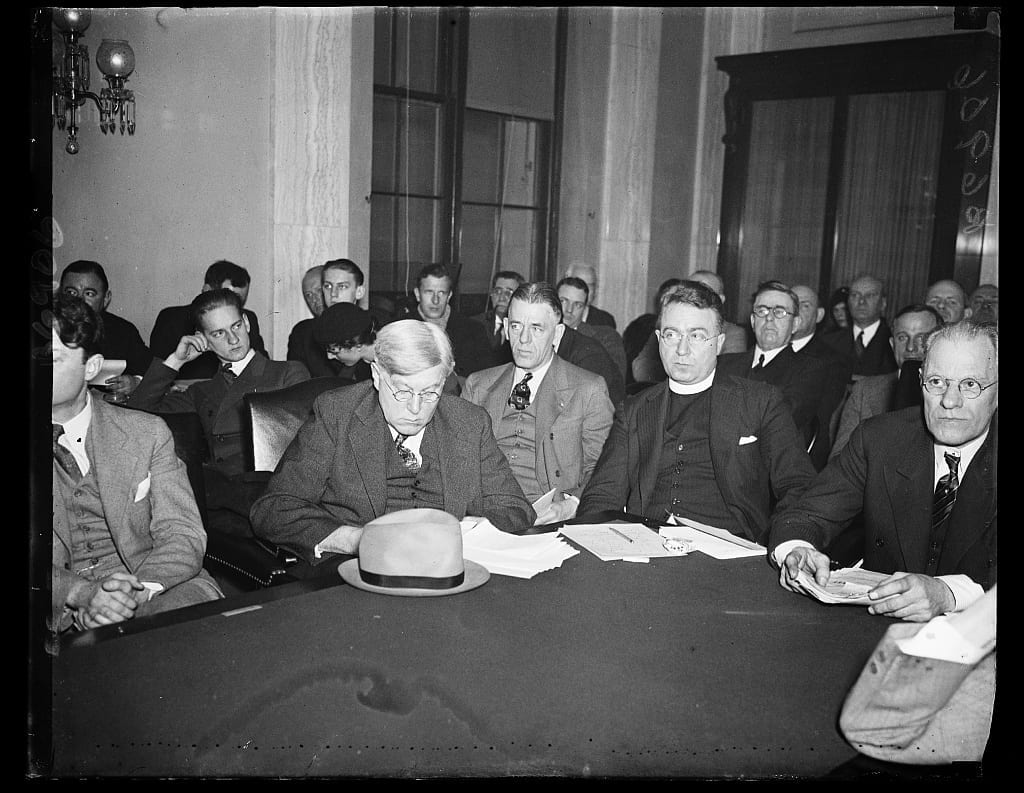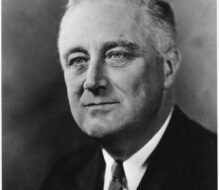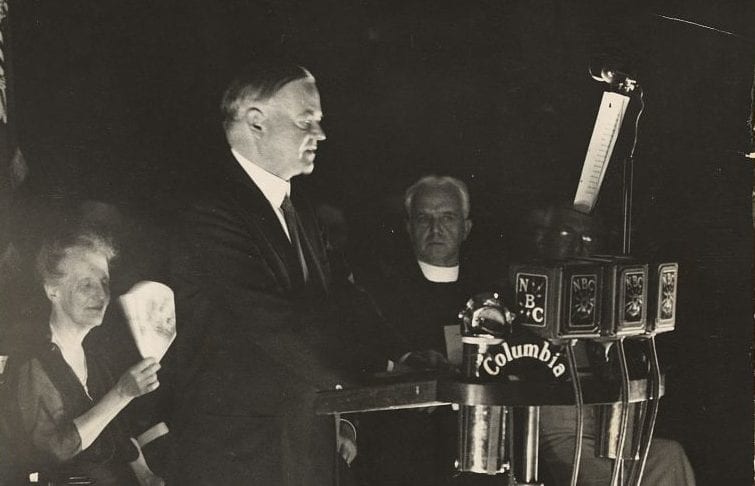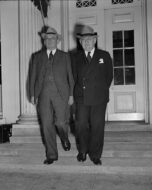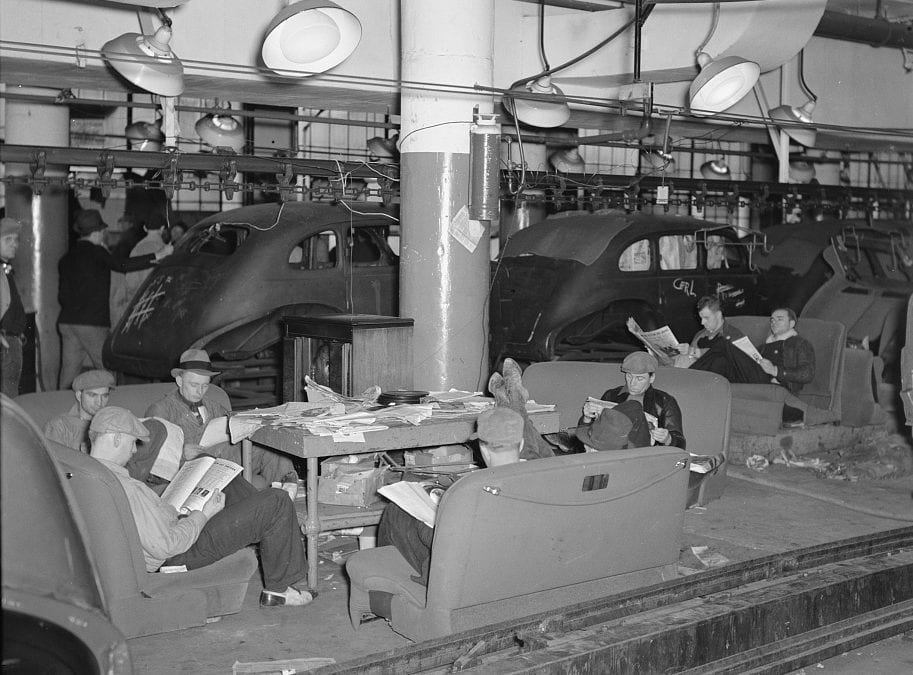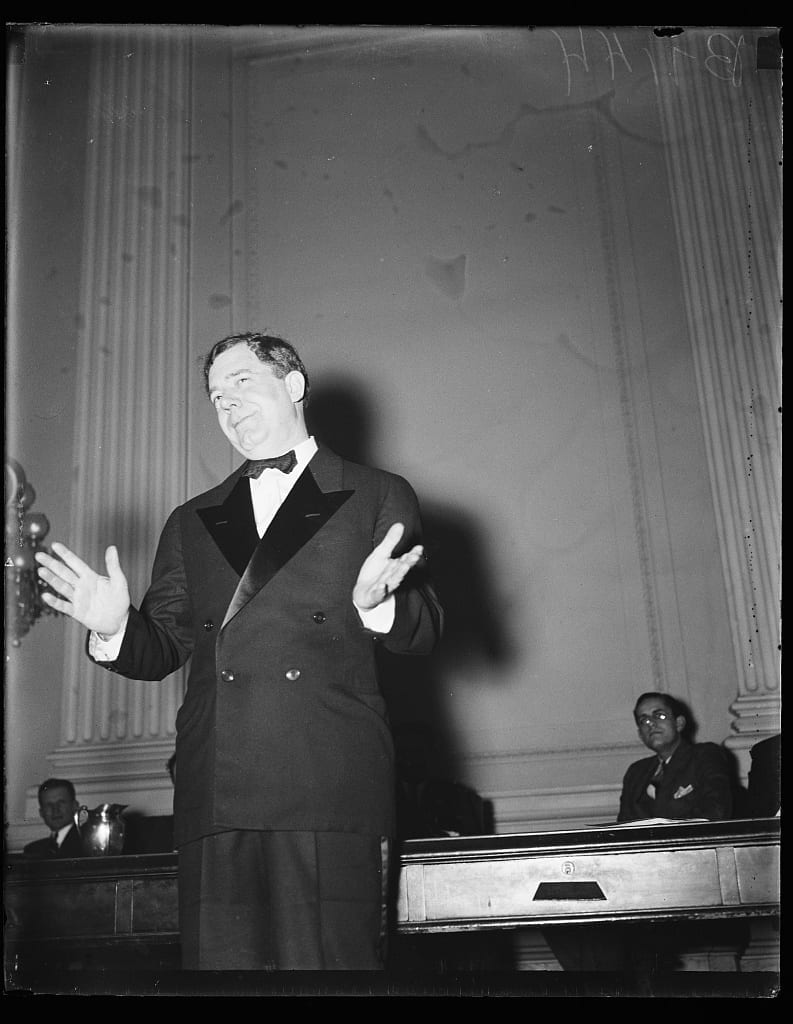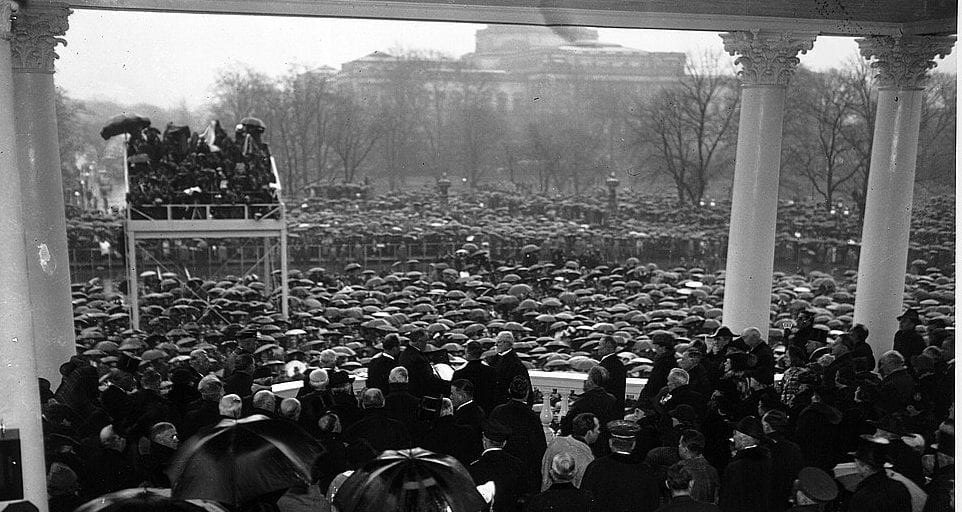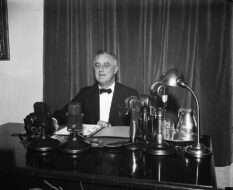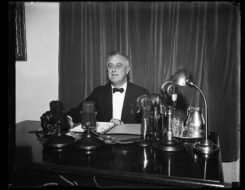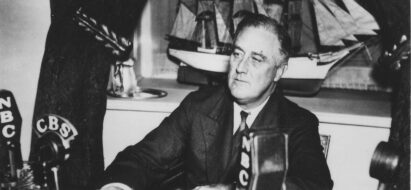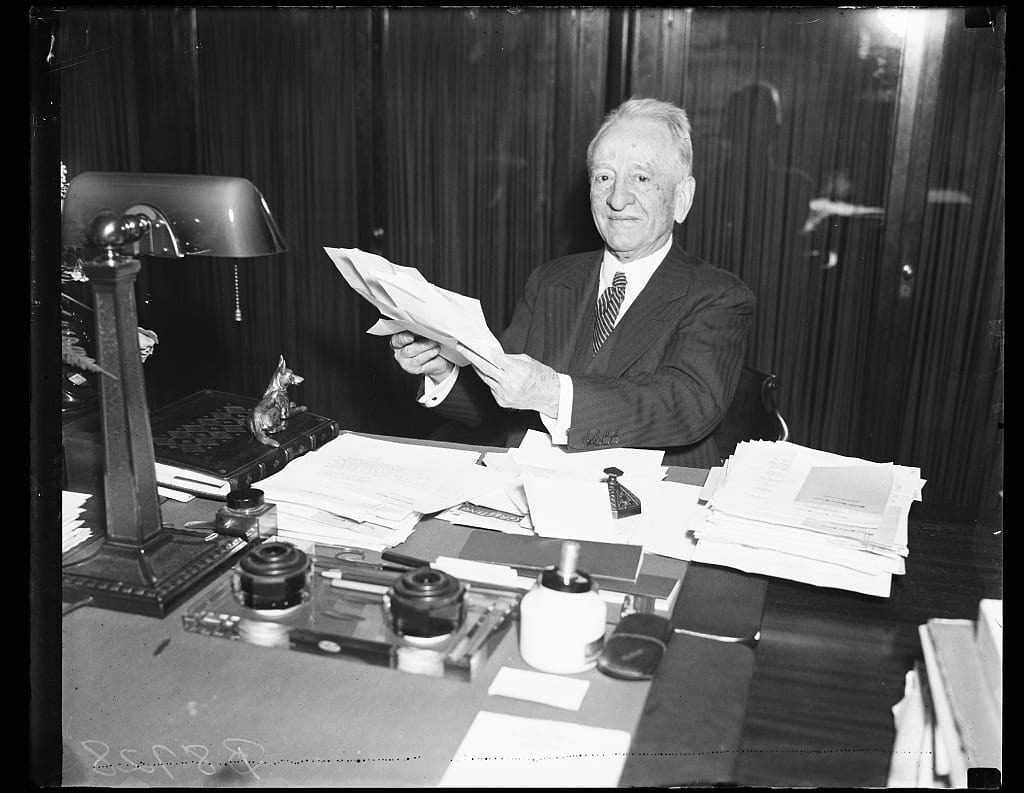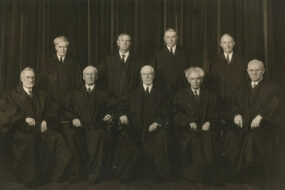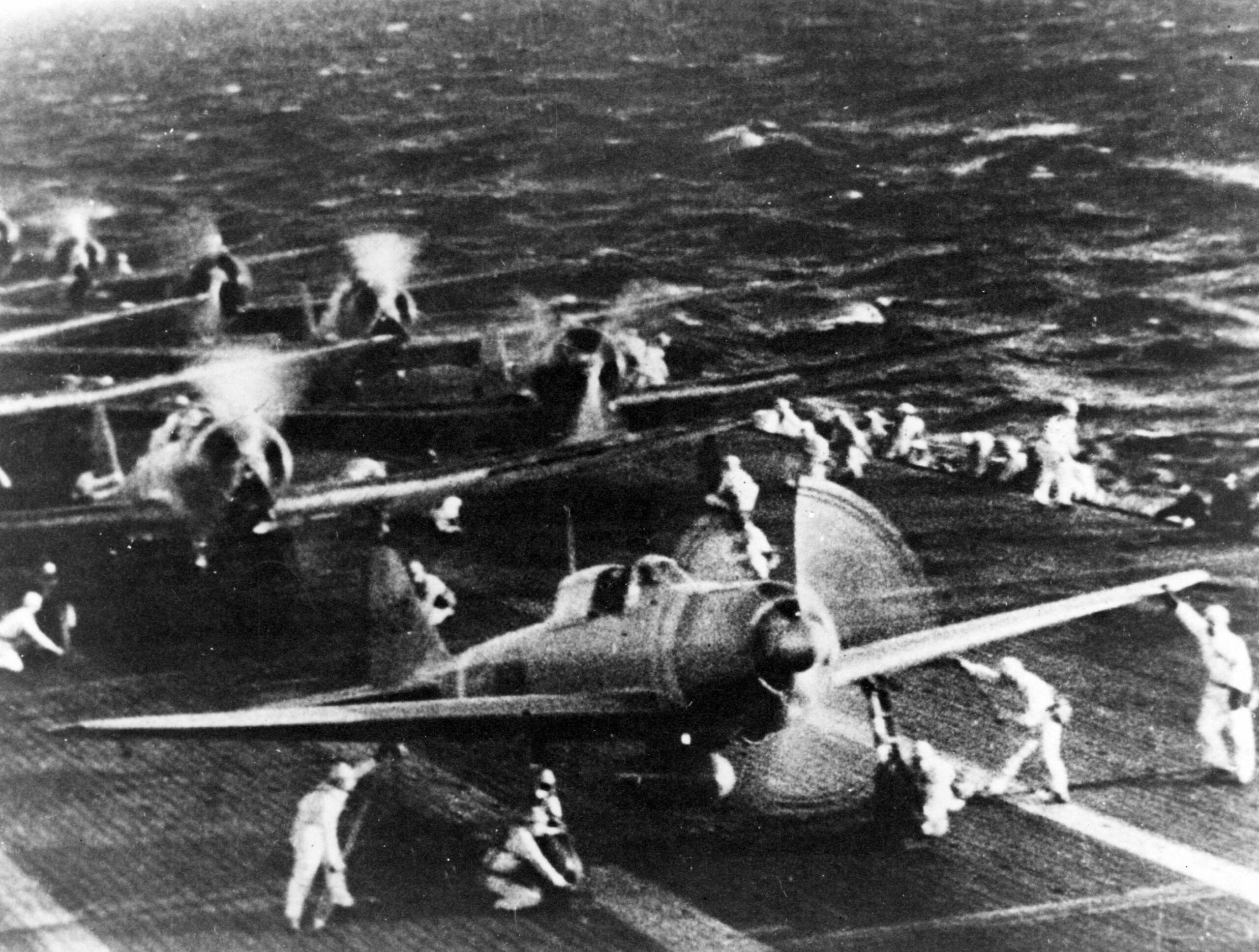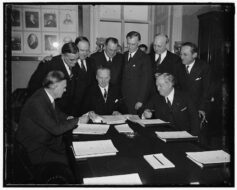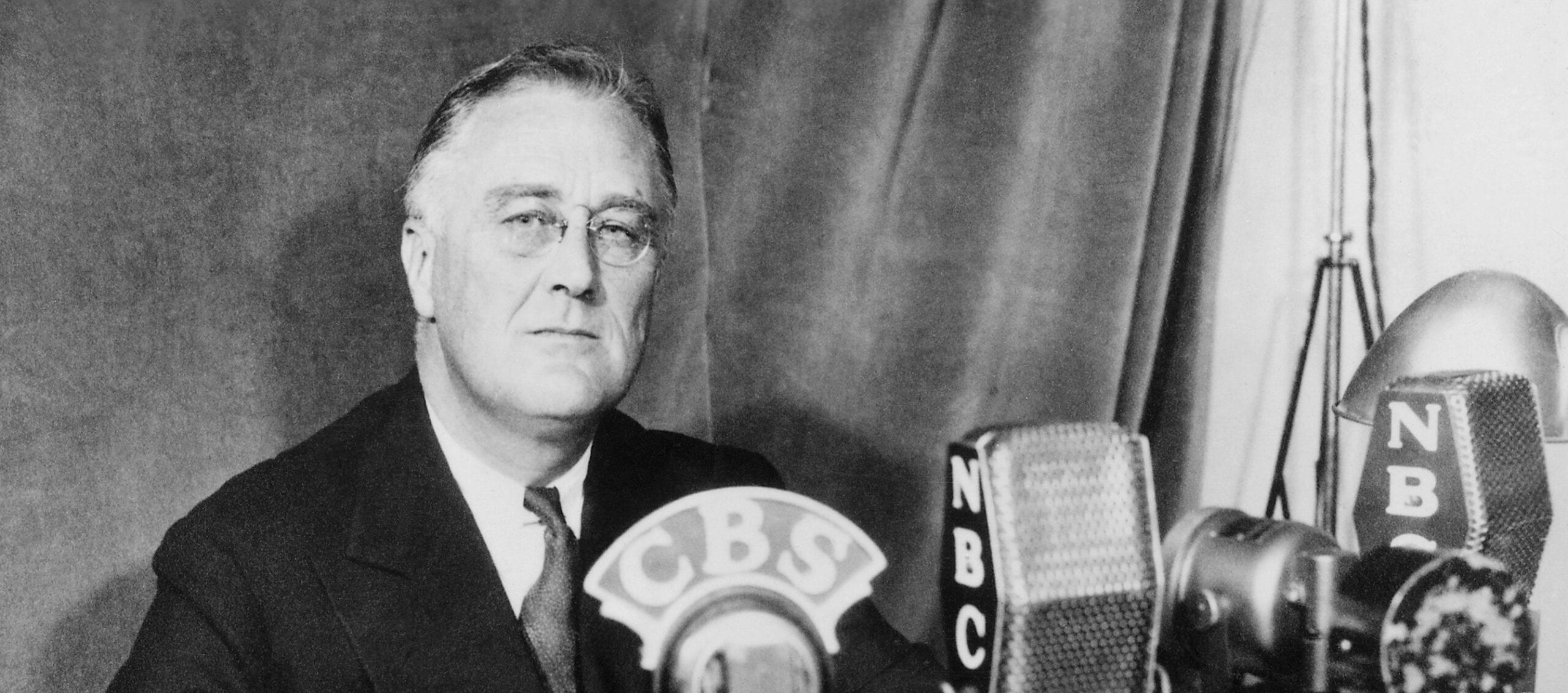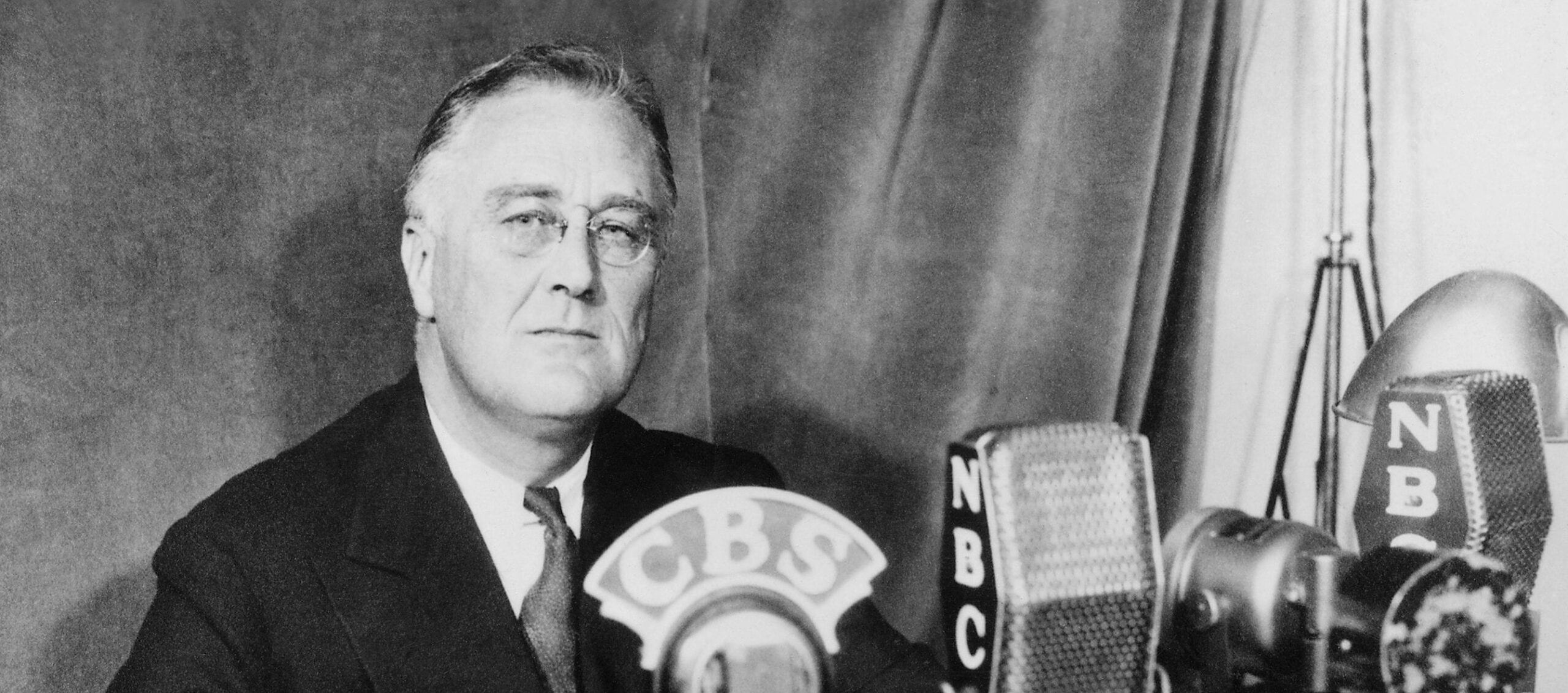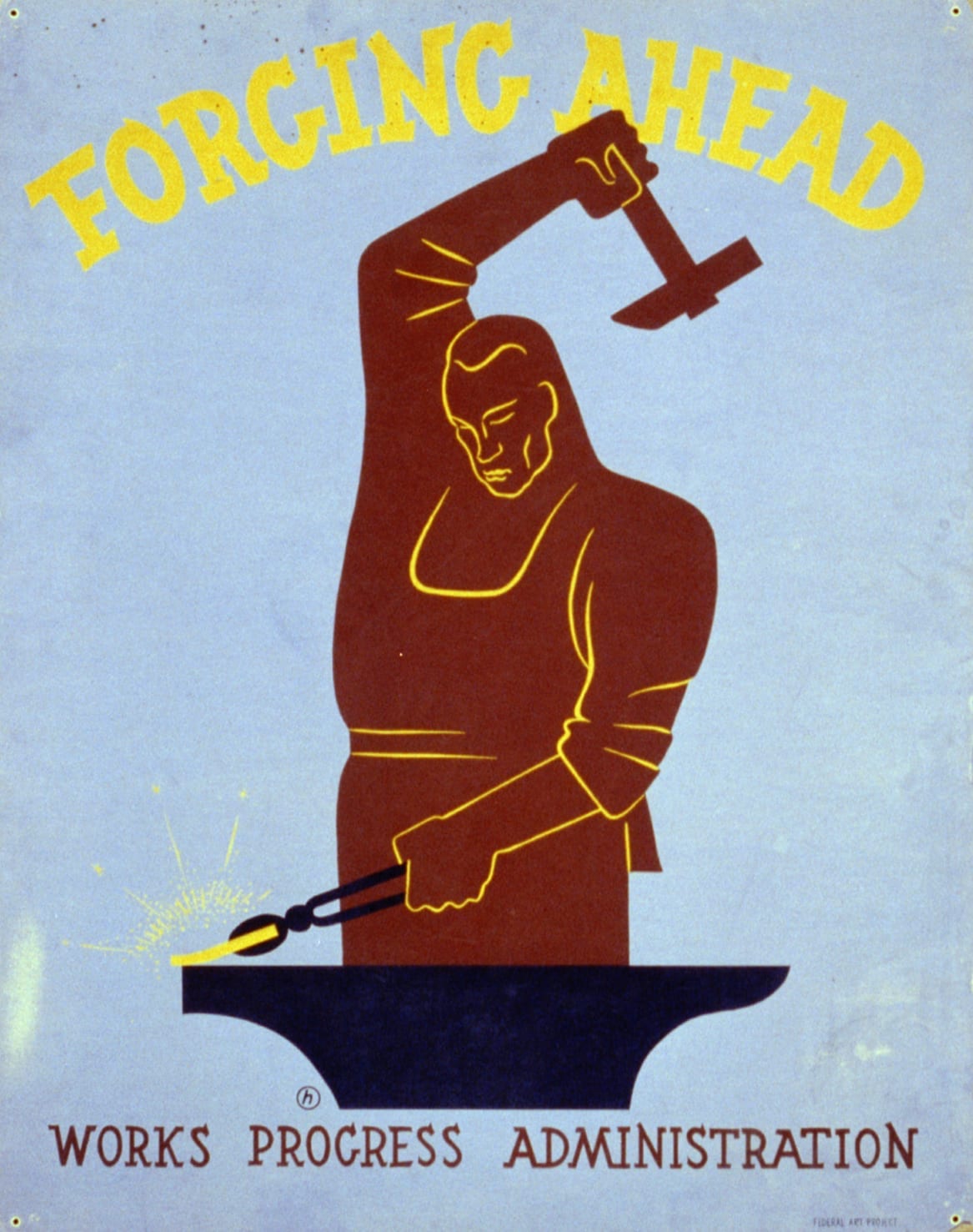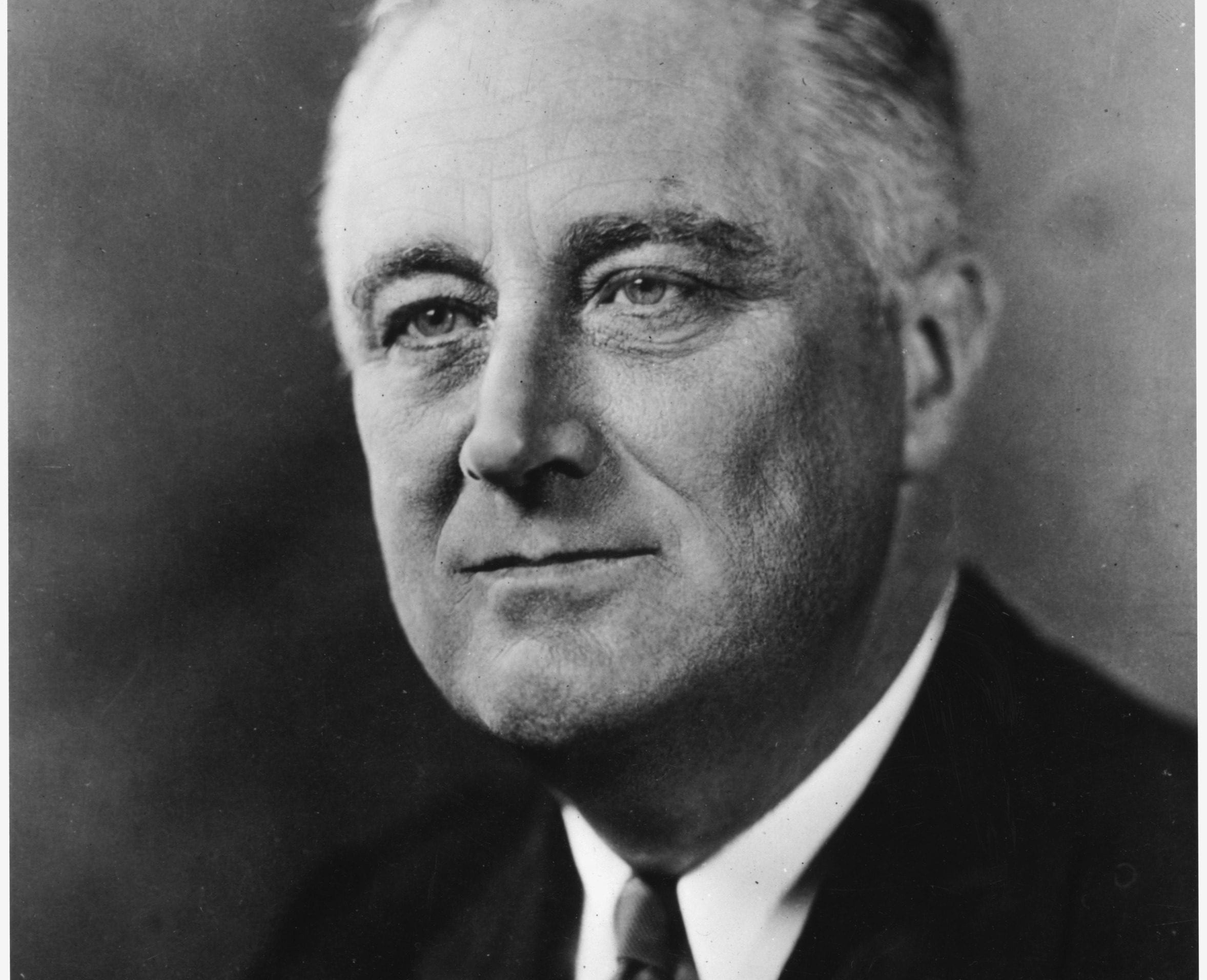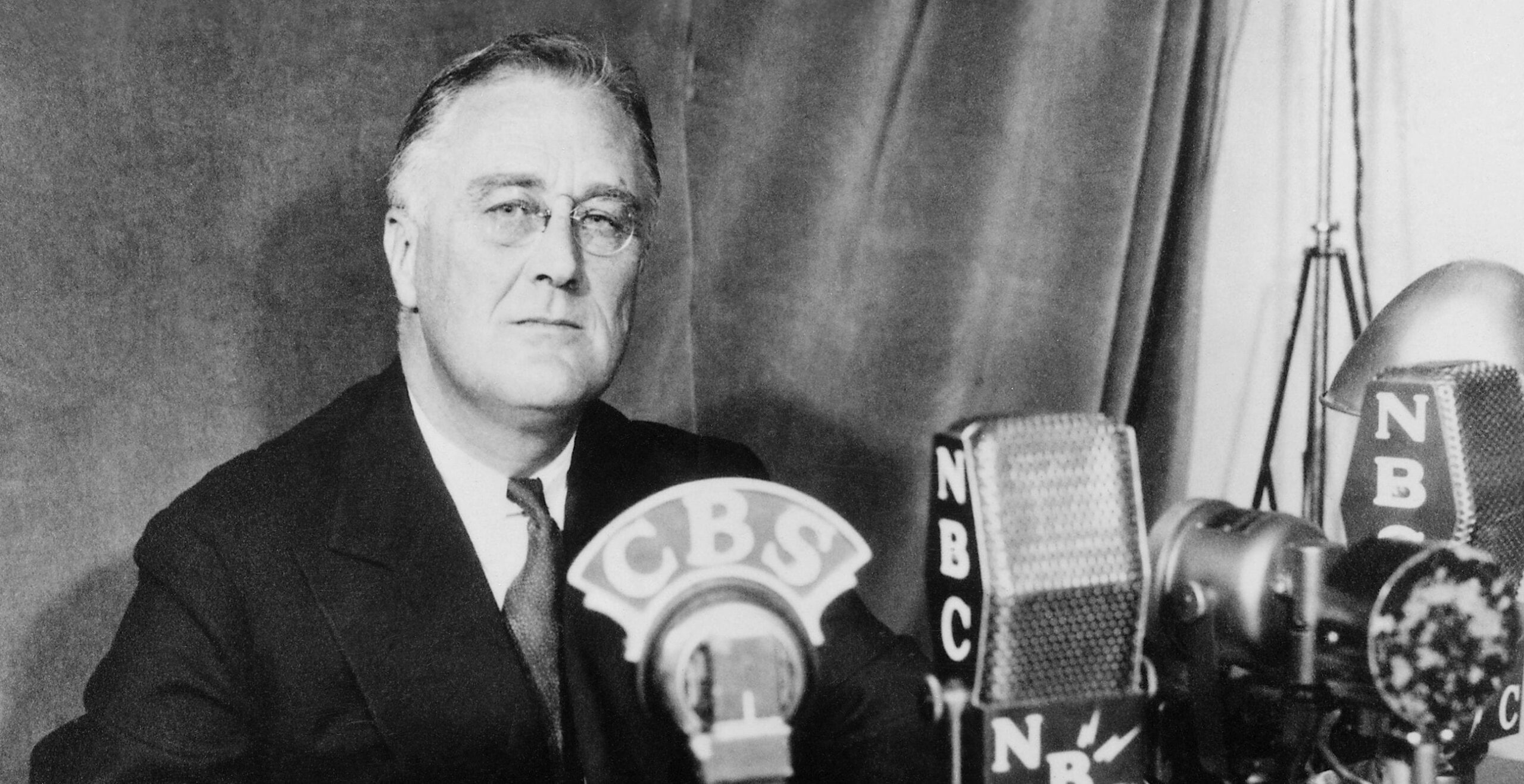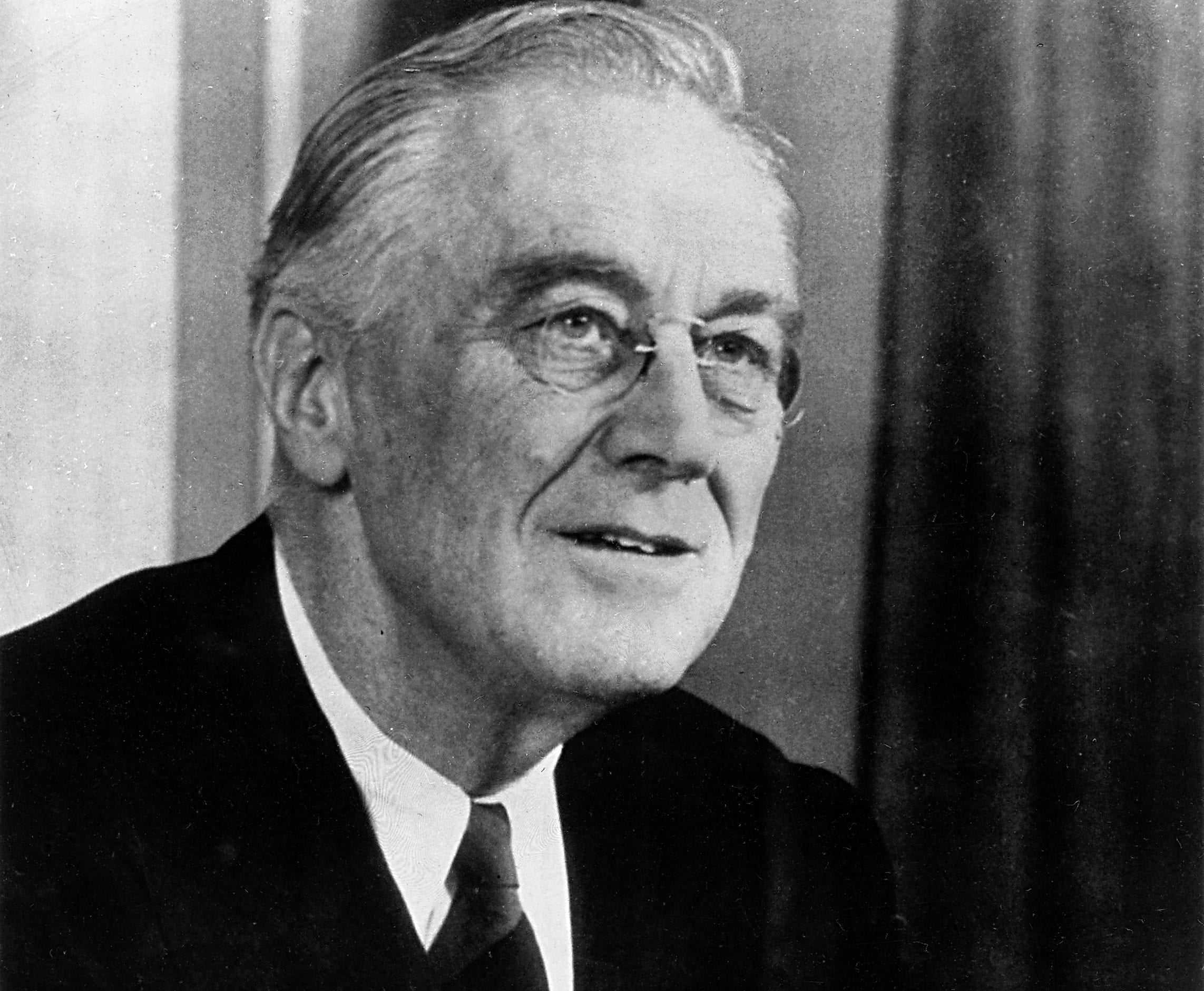
No study questions
No related resources
The great mass of human beings, absorbed in the toils, cares and activities of life, are only dimly conscious of the pace at which mankind has begun to travel. We look back a hundred years and see that great changes have taken place. We look back fifty years and see that the speed is constantly quickening. This present century has witnessed an enormous revolution in material things, in scientific appliances, in political institutions, in manners and customs. The greatest change of all is the least perceptible by individuals: it is the far greater numbers which in every civilized country participate in the fuller life of man. ’In those days,’ said Disraeli, writing at the beginning of the nineteenth century, ’England was for the few and for the very few.’ ’The twice two thousand for whom,’ wrote Byron, ’the world is made’ have given place to many millions for whom existence has become larger, safer, more varied, more full of hope and choice. In the United States scores of millions have lifted themselves above primary necessities and comforts, and aspire to culture – at least for their children. Europe, though stunned and lacerated by Armageddon, presents a similar if less general advance. We all take the modern conveniences and facilities as they are offered to us without being grateful or consciously happier. But we simply could not live if they were taken away. We assume that progress will be constant. ’This ’ere progress,’ Mr Wells makes one of his characters remark, ’keeps going on. It’s wonderful ’ow it keeps going on.’ It is also very fortunate, for if it stopped or were reversed, there would be the catastrophe of unimaginable horror. Mankind has gone too far to go back, and is moving too fast to stop. There are too many people maintained, not merely in comfort but in existence, by processes unknown a century ago, for us to afford even a temporary check, still less a general setback, without experiencing calamity in its most frightful form.
When we look back beyond a hundred years over the long trails of history, we see immediately why the age we live in differs from all other ages in human annals. Mankind has sometimes travelled forwards and sometimes backwards, or has stood still even for hundreds of years. It remained stationary in India and in China for thousands of years. What is it that has produced this new prodigious speed of man? Science is the cause. Her once feeble vanguards, often trampled down, often perishing in isolation, have now become a vast organized united class-conscious army marching forward upon all the fronts towards objectives none may measure or define. It is a proud, ambitious army which cares nothing for all the laws that men have made; nothing for their most timehonoured customs, or most dearly cherished beliefs, or deepest instincts. It is this power called Science which has laid hold of us, conscripted us into its regiments and batteries, set us to work upon its highways and in its arsenals; rewarded us for our services, healed us when we were wounded, trained us when we were young, pensioned us when we were worn out. None of the generations of men before the last two or three were ever gripped for good or ill and handled like this.
Man in the earliest stages lived alone and avoided his neighbours with as much anxiety and probably as much reason as he avoided the fierce flesh-eating beasts that shared his forests. With the introduction of domestic animals the advantages of co-operation and the division of labour became manifest. In the neolithic times when cereals were produced and agriculture developed, the bleak hungry period whilst the seeds were germinating beneath the soil involved some form of capitalism and the recognition of those special rights of landed proprietors the traces of which are still visible in our legislation. Each stage involved new problems legal, sociological and moral. But progress only crawled, and often rested for a thousand years or so.
The two ribbon States in the valley of the Nile and the Euphrates produced civilizations as full of pomp and circumstance and more stable than any the world has ever known. Their autocracies and hierarchies were founded upon the control and distribution of water and corn. The rulers held the people in an efficiency of despotism never equalled till Soviet Russia was born. They had only to cut off or stint the water in the canals to starve or subjugate rebellious provinces. This, apart from their granaries, gave them powers at once as irresistible and as capable of intimate regulation as the control of all food supplies gives to the Bolshevik commissars. Safe from internal trouble, they were vulnerable only to external attack. But in these states man had not learnt to catalyse the forces of nature. The maximum power available was the sum of the muscular efforts of all the inhabitants. Later empires, scarcely less imposing but far less stable, rose and fell. In the methods of production and communication, in the modes of getting food and exchanging goods, there was less change between the time of Sargon and the time of Louis XIV than there has been between the accession of Queen Victoria and the present day. Darius could probably send a message from Susa to Sardis faster than Philip II could transmit an order from Madrid to Brussels. Sir Robert Peel, summoned in 1841 from Rome to form a government in London, took the same time as the Emperor Vespasian when he had to hasten to his province of Britain. The bathrooms of the palaces of Minos were superior to those of Versailles. A priest from Thebes would probably have felt more at home at the Council of Trent two thousand years after Thebes had vanished than Sir Isaac Newton at a modern undergraduate physical society, or George Stephenson in the Institute of Electrical Engineers. The changes have been so sudden and so gigantic that no period in history can be compared with the last century. The past no longer enables us even dimly to measure the future.
The most wonderful of all modern prophecies is found in Tennyson’s ’Locksley Hall’: For I dipt into the future, far as human eye could see, Saw the Vision of the world, and all the wonder that would be; Saw the heavens fill with commerce, argosies of magic sails, Pilots of the purple twilight, dropping down with costly bales; Heard the heavens fill with shouting, and there rain’d a ghastly dew From the nations’ airy navies grappling in the central blue; Far along the world-wide whisper of the south-wind rushing warm With the standards of the peoples plunging thro’ the thunderstorm; Till the war-drum throbb’d no longer, and the battle-flags were furl’d In the Parliament of man, the Federation of the world. Slowly comes a hungry people, as a lion creeping nigher, Glares at one that nods and winks behind a slowly-dying fire.
These six couplets of prediction, written eighty years ago, have already been fulfilled. The conquest of the air for commerce and war, the League of Nations, the Communist movement—all divined in their true sequence by the great Victorian—all now already in the history books and stirring the world around us today! We may search the Scriptures in vain for such precise and swiftly vindicated forecasts of the future. Jeremiah and Isaiah dealt in dark and cryptic parables pointing to remote events and capable of many varied interpretations from time to time. A Judge, a Prophet, a Redeemer would arise to save His Chosen People; and from age to age the Jews asked, disputing, ’Art thou he that should come or do we look for another?’ But ’Locksley Hall’ contains an exact foretelling of stupendous events, which many of those who knew the writer lived to see and endure! The dawn of the Victorian era opened the new period of man; and the genius of the poet pierced the veil of the future.
There are two processes which we adopt consciously or unconsciously when we try to prophesy. We can seek a period in the past whose conditions resemble as closely as possible those of our day, and presume that the sequel to that period will, save for some minor alterations, be repeated. Secondly, we can survey the general course of development in our immediate past, and endeavour to prolong it into the near future. The first is the method of the historian; the second that of the scientist. Only the second is open to us now, and this only in a partial sphere. By observing all that Science has achieved in modern times, and the knowledge and power now in her possession, we can predict with some assurance the inventions and discoveries which will govern our future. We can but guess, peering through a glass darkly, what reactions these discoveries and their applications will produce upon the habits, the outlook and the spirit of men.
Whereas formerly the utmost power that man could guide and control was a team of horses or a galleyful of slaves, or possibly, if they could be sufficiently drilled and harnessed, a gang of labourers like the Israelites in Egypt; it is today already possible to control accurately from the bridge of a battle cruiser all the power of hundreds of thousands of men, or to set off with one finger a mine capable in an instant of destroying the work of thousands of man-years. These changes are due to the substitution of molecular energy for muscular energy, and its direction and control by an elaborate, beautifully perfected apparatus. These immense new sources of power, and the fact that they can be wielded by a single individual, have made possible novel methods of mining and metallurgy, new modes of transport and undreamed-of machinery. These in their turn enable the molecular sources of power to be extended and used more efficiently. They facilitate also the improvement of ancient methods. They substitute the hundred-thousandkilowatt turbo-generators at Niagara for the mill-wheel of our forefathers. Each invention acted and reacted on other inventions, and with ever-growing rapidity that vast structure of technical achievement was raised which separates the civilization of today from all that the past has known.
There is no doubt that this evolution will continue at an increasing rate. We know enough to be sure that the scientific achievements of the next fifty years will be far greater, more rapid and more surprising, than those we have already experienced. The slide-lathe enabled machines of precision to be made, and the power of steam rushed out upon the world. And through the steam-clouds flashed the dazzling lightning of electricity. But this is only a beginning. High authorities tell us that new sources of power, vastly more important than any we yet know, will surely be discovered. Nuclear energy is incomparably greater than the molecular energy which we use today. The coal a man can get in a day can easily do five hundred times as much work as the man himself. Nuclear energy is at least one million times more powerful still. If the hydrogen atoms in a pound of water could be prevailed upon to combine together and form helium, they would suffice to drive a thousandhorsepower engine for a whole year. If the electrons, those tiny planets of the atomic systems, were induced to combine with the nuclei in the hydrogen the horsepower liberated would be 120 times greater still. There is no question among scientists that this gigantic source of energy exists. What is lacking is the match to set the bonfire alight, or it may be the detonator to cause the dynamite to explode. The Scientists are looking for this.
The discovery and control of such sources of power would cause changes in human affairs incomparably greater than those produced by the steam-engine four generations ago. Schemes of cosmic magnitude would become feasible. Geography and climate would obey our orders. Fifty thousand tons of water, the amount displaced by the Berengaria, would, if exploited as described, suffice to shift Ireland to the middle of the Atlantic. The amount of rain falling yearly upon the Epsom racecourse would be enough to thaw all the ice at the Arctic and Antarctic poles. The changing of one element into another by means of temperatures and pressures would be far beyond our present reach, would transform beyond all description our standards of values. Materials thirty times stronger than the best steel would create engines fit to bridle the new forms of power. Communications and transport by land, water and air would take unimaginable forms, if, as is in principle possible, we could make an engine of 600 horsepower, weighing 20 lb and carrying fuel for a thousand hours in a tank the size of a fountain-pen. Wireless telephones and television, following naturally upon their present path of development, would enable their owner to connect up with any room similarly installed, and hear and take part in the conversation as well as if he put his head in through the window. The congregation of men in cities would become superfluous. It would rarely be necessary to call in person on any but the most intimate friends, but if so, excessively rapid means of communication would be at hand. There would be no more object in living in the same city with one’s neighbour than there is today in living with him in the same house. The cities and the countryside would become indistinguishable. Every home would have its garden and its glade.
Up till recent times the production of food has been the prime struggle of man. That war is won. There is no doubt that the civilized races can produce or procure all the food they require. Indeed some of the problems which vex us today are due to the production of wheat by white men having exceeded their own needs, before yellow men, brown men and black men have learnt to demand and become able to purchase a diet superior to rice. But food is at present obtained almost entirely from the energy of the sunlight. The radiation from the sun produces from the carbonic acid in the air more or less complicated carbon compounds which give us our plants and vegetables. We use the latent chemical energy of these to keep our bodies warm; we convert it into muscular effort. We employ it in the complicated processes of digestion to repair and replace the wasted cells of our bodies. Many people, of course, prefer food in what the vegetarians call ’the secondhand form’, i.e. after it has been digested and converted into meat for us by domestic animals kept for this purpose. In all these processes, however, ninety-nine parts of the solar energy are wasted for every part used.
Even without the new sources of power great improvements are probable here. Microbes, which at present convert the nitrogen of the air into the proteins by which animals live, will be fostered and made to work under controlled conditions, just as yeast is now. New strains of microbes will be developed and made to do a great deal of our chemistry for us. With a greater knowledge of what are called hormones, i.e. the chemical messengers in our blood, it will be possible to control growth. We shall escape the absurdity of growing a whole chicken in order to eat the breast or wing, by growing these parts separately under a suitable medium. Synthetic food will, of course, also be used in the future. Nor need the pleasures of the table be banished. That gloomy Utopia of tabloid meals need never be invaded. The new foods will from the outset be practically indistinguishable from the natural products, and any changes will be so gradual as to escape observation.
If the gigantic new sources of power become available, food will be produced without recourse to sunlight. Vast cellars in which artificial radiation is generated may replace the cornfields or potato-patches of the world. Parks and gardens will cover our pastures and ploughed fields. When the time comes there will be plenty of room for the cities to spread themselves again.
But equally startling developments lie already just beyond our finger-tips in the breeding of human beings and the shaping of human nature. It used to be said, ’Though you have taught the dog more tricks, you cannot alter the breed of the dog.’ But that is no longer true. A few years ago London was surprised by a play called Rossum’s Universal Robots. The production of such beings may well be possible within fifty years. They will not be made, but grown under glass. There seems little doubt that it will be possible to carry out in artificial surroundings the entire cycle which now leads to the birth of a child. Interference with the mental development of such beings, expert suggestion and treatment in the earlier years, would produce beings specialized to thought or toil. The production of creatures, for instance, which have admirable physical development, with their mental endowment stunted in particular directions, is almost within the range of human power. A being might be produced capable of tending a machine but without other ambitions. Our minds recoil from such fearful eventualities, and the laws of a Christian civilization will prevent them. But might not lop-sided creatures of this type fit in well with the Communist doctrines of Russia? Might not the Union of Soviet Republics armed with all the power of science find it in harmony with all their aims to produce a race adapted to mechanical tasks and with no other ideas but to obey the Communist State? The present nature of man is tough and resilient. It casts up its sparks of genius in the darkest and most unexpected places. But Robots could be made to fit the grisly theories of Communism. There is nothing in the philosophy of Communists to prevent their creation.
I have touched upon this sphere only lightly, but with the purpose of pointing out that, in a future which our children may live to see, powers will be in the hands of men altogether different from any by which human nature has been moulded. Explosive forces, energy, materials, machinery will be available upon a scale which can annihilate whole nations. Despotisms and tyrannies will be able to prescribe the lives and even the wishes of their subjects in a manner never known since time began. If to these tremendous and awful powers is added the pitiless sub-human wickedness which we now see embodied in one of the most powerful reigning governments, who shall say that the world itself will not be wrecked, or indeed that it ought not to be wrecked? There are nightmares of the future from which a fortunate collision with some wandering star, reducing the earth to incandescent gas, might be a merciful deliverance.
It is indeed a descent almost to the ridiculous to contemplate the impact of the tremendous and terrifying discoveries which are approaching upon the structure of Parliamentary institutions. How can we imagine the whole mass of the people being capable of deciding by votes at From the Report of the Committee With Studies of Administrative Management in the Federal Government lections upon the right course to adopt amid these cataclysmic changes? Even now the Parliaments of every country have shown themselves quite inadequate to deal with the economic problems which dominate the affairs of every nation and of the world. Before these problems the claptrap of the hustings and the stunts of the newspapers wither and vanish away. Democracy as a guide or motive to progress has long been known to be incompetent. None of the legislative assemblies of the great modern states represents in universal suffrage even a fraction of the strength or wisdom of the community. Great nations are no longer led by their ablest men, or by those who know most about their immediate affairs, or even by those who have a coherent doctrine. Democratic governments drift along the line of least resistance, taking short views, paying their way with sops and doles, and smoothing their path with pleasant-sounding platitudes. Never was there less continuity or design in their affairs, and yet towards them are coming swiftly changes which will revolutionize for good or ill not only the whole economic structure of the world but the social habits and moral outlook of every family. Only the Communists have a plan and a gospel. It is a plan fatal to personal freedom and a gospel founded upon Hate.
Certain it is that while men are gathering knowledge and power with ever-increasing and measureless speed, their virtues and their wisdom have not shown any notable improvement as the centuries have rolled. The brain of a modern man does not differ in essentials from that of the human beings who fought and loved here millions of years ago. The nature of man has remained hitherto practically unchanged. Under sufficient stress—starvation, terror, warlike passion, or even cold intellectual frenzy—the modern man we know so well will do the most terrible deeds, and his modern woman will back him up. At the present moment the civilizations of many different ages co-exist together in the world, and their representatives meet and converse. Englishmen, Frenchmen, or Americans with ideas abreast of the twentieth century do business with Indians or Chinese whose civilizations were crystallized several thousands of years ago. We have the spectacle of the powers and weapons of man far outstripping the march of his intelligence; we have the march of his intelligence proceeding far more rapidly than the development of his nobility. We may well find ourselves in the presence of ’the strength of civilization without its mercy’.
It is therefore above all things important that the moral philosophy and spiritual conceptions of men and nations should hold their own amid these formidable scientific evolutions. It would be much better to call a halt in material progress and discovery rather than to be mastered by our own apparatus and the forces which it directs. There are secrets too mysterious for man in his present state to know, secrets which, once penetrated, may be fatal to human happiness and glory. But the busy hands of the scientists are already fumbling with the keys of all the chambers hitherto forbidden to mankind. Without an equal growth of Mercy, Pity, Peace and Love, Science herself may destroy all that makes human life majestic and tolerable. There never was a time when the inherent virtue of human beings required more strong and confident expression in daily life; there never was a time when the hope of immortality and the disdain of earthly power and achievement were more necessary for the safety of the children of men.
After all, this material progress, in itself so splendid, does not meet any of the real needs of the human race. I read a book the other day which traced the history of mankind from the birth of the solar system to its extinction. There were fifteen or sixteen races of men which in succession rose and fell over periods measured by tens of millions of years. In the end a race of beings was evolved which had mastered nature. A state was created whose citizens lived as long as they chose, enjoyed pleasures and sympathies incomparably wider than our own, navigated the interplanetary spaces, could recall the panorama of the past and foresee the future. But what was the good of all that to them? What did they know more than we know about the answers to the simple questions which man has asked since the earliest dawn of reason—’Why are we here? What is the purpose of life? Whither are we going?’ No material progress, even though it takes shapes we cannot now conceive, or however it may expand the faculties of man, can bring comfort to his soul. It is this fact, more wonderful than any that Science can reveal, which gives the best hope that all will be well. Projects undreamed-of by past generations will absorb our immediate descendants; forces terrific and devastating will be in their hands; comforts, activities, amenities, pleasures will crowd upon them, but their hearts will ache, their lives will be barren, if they have not a vision above material things. And with the hopes and powers will come dangers out of all proportion to the growth of man’s intellect, to the strength of his character or to the efficacy of his institutions. Once more the choice is offered between Blessing and Cursing. Never was the answer that will be given harder to foretell.

Conversation-based seminars for collegial PD, one-day and multi-day seminars, graduate credit seminars (MA degree), online and in-person.
